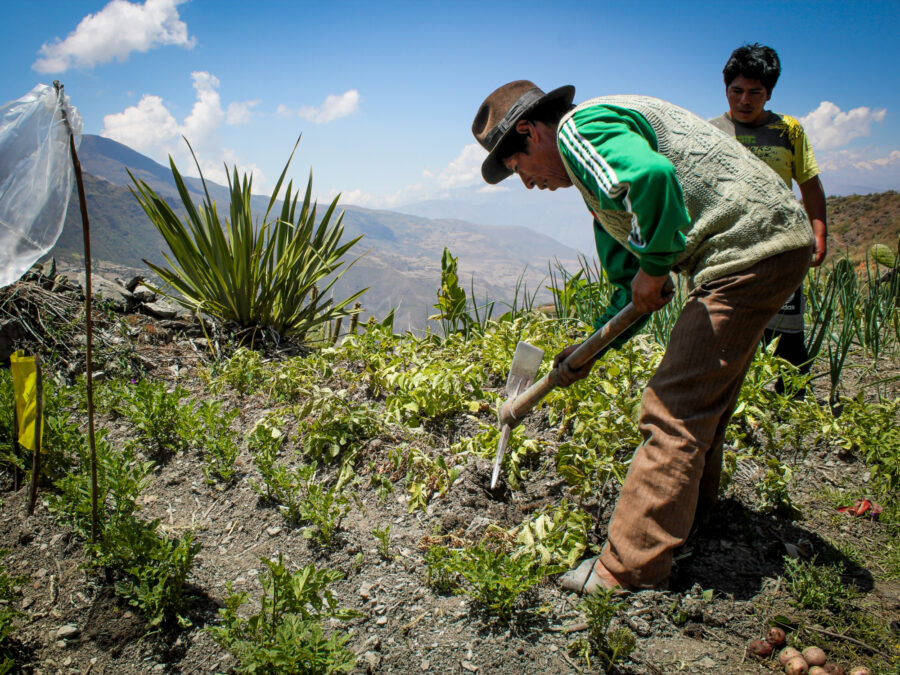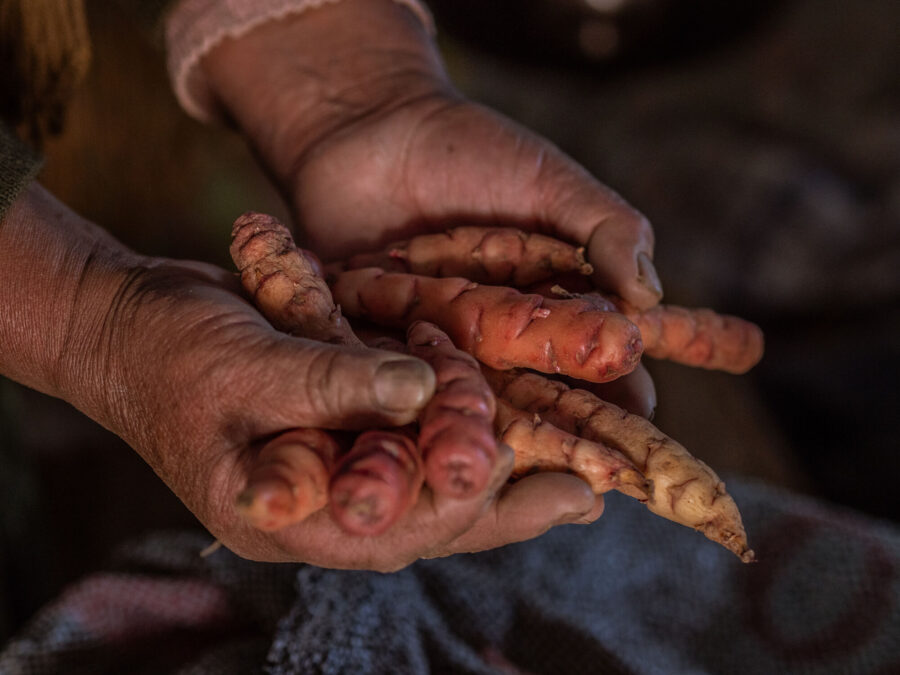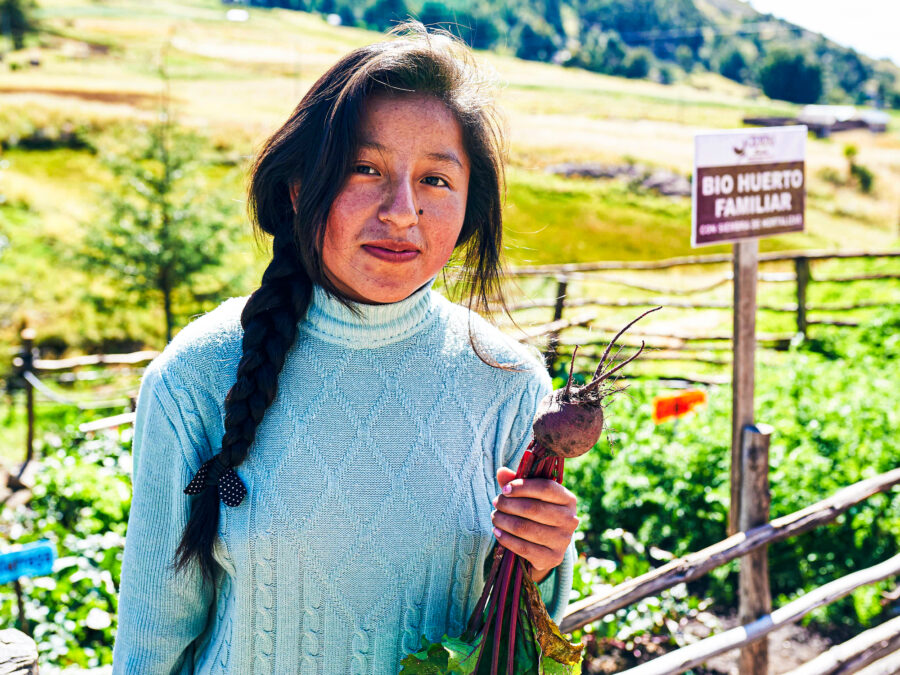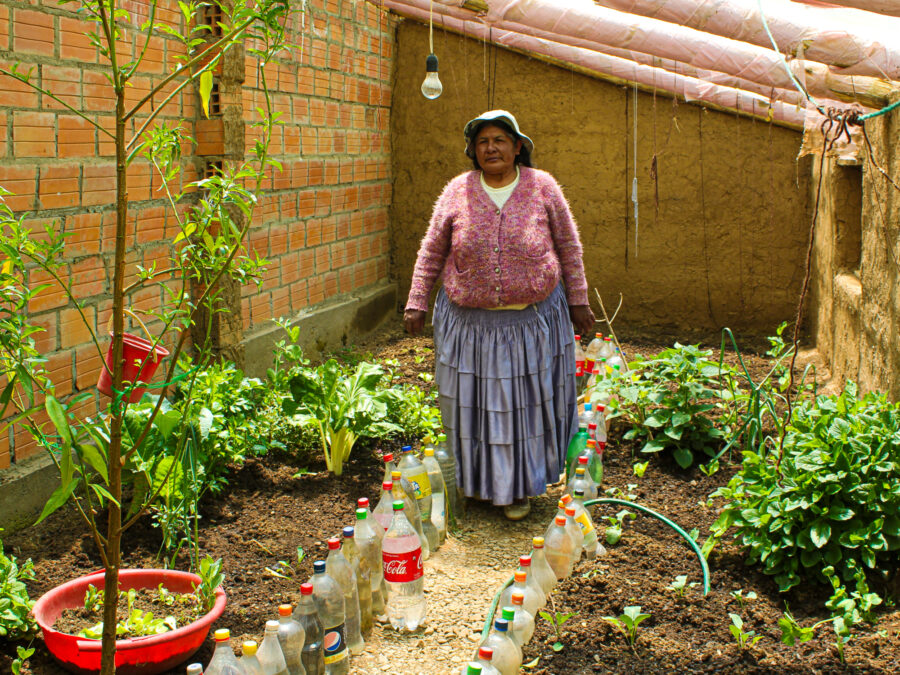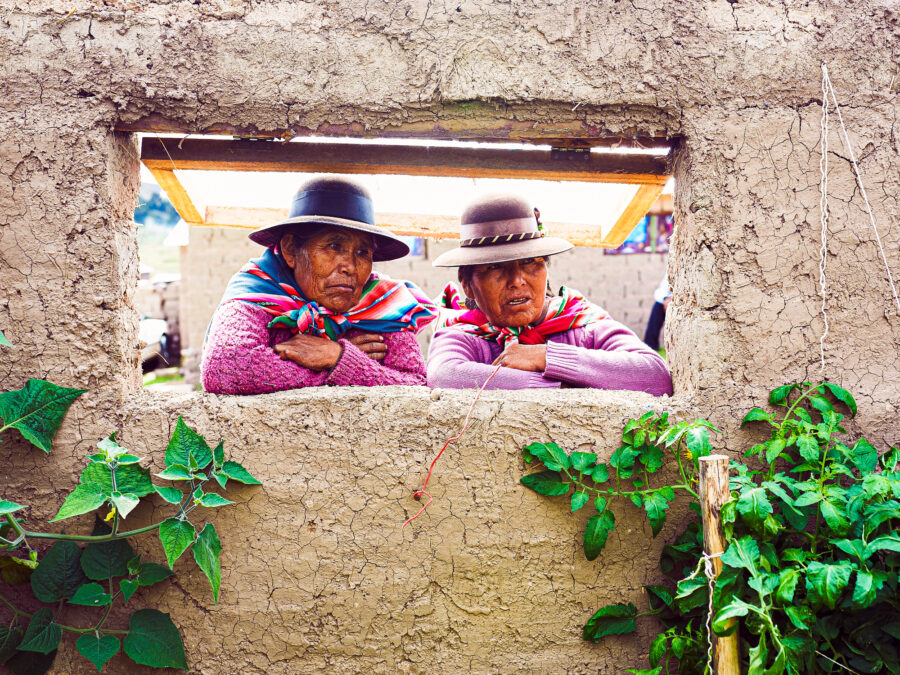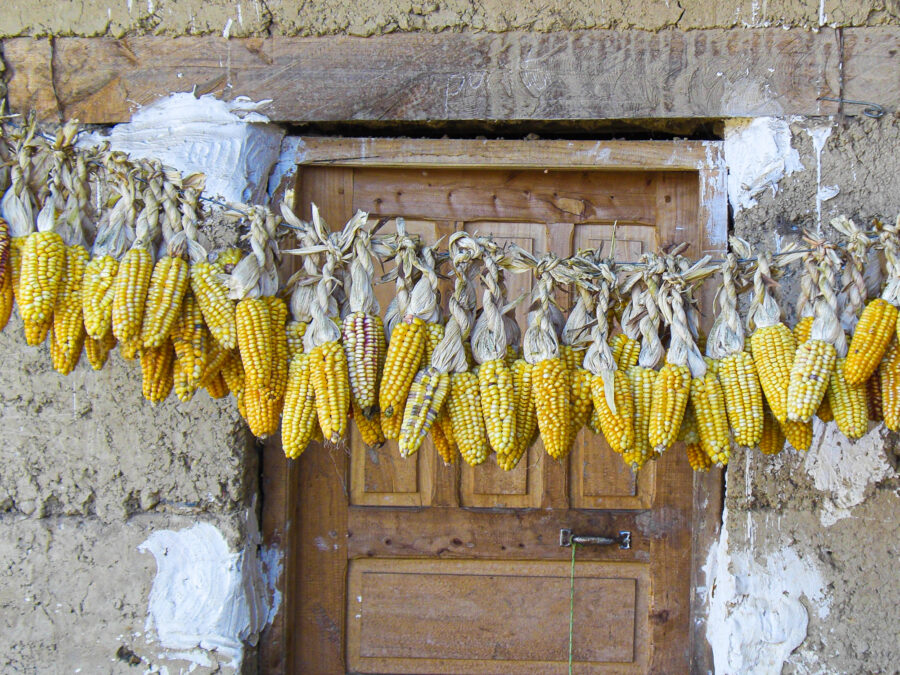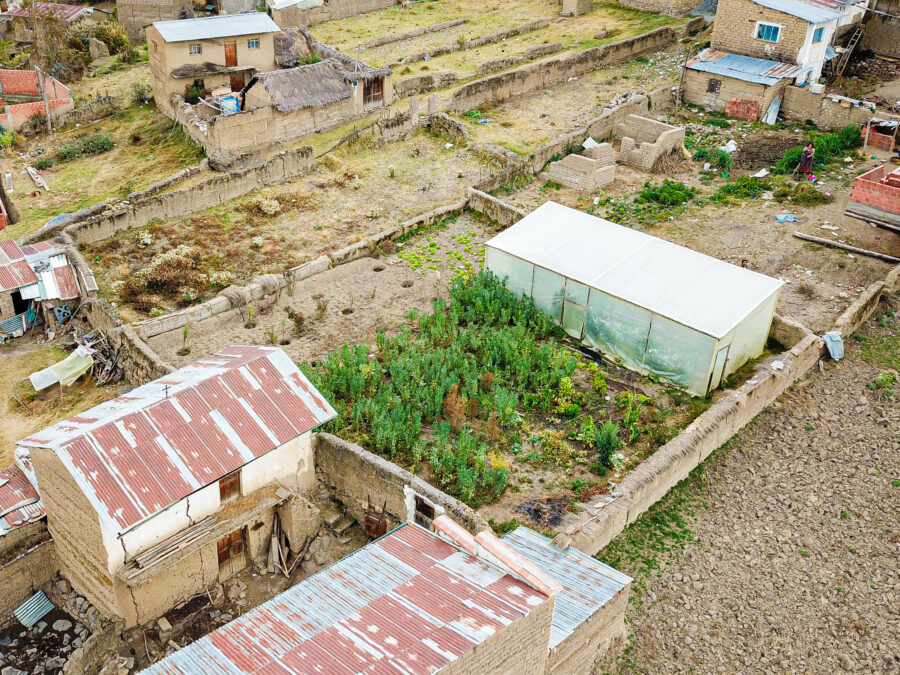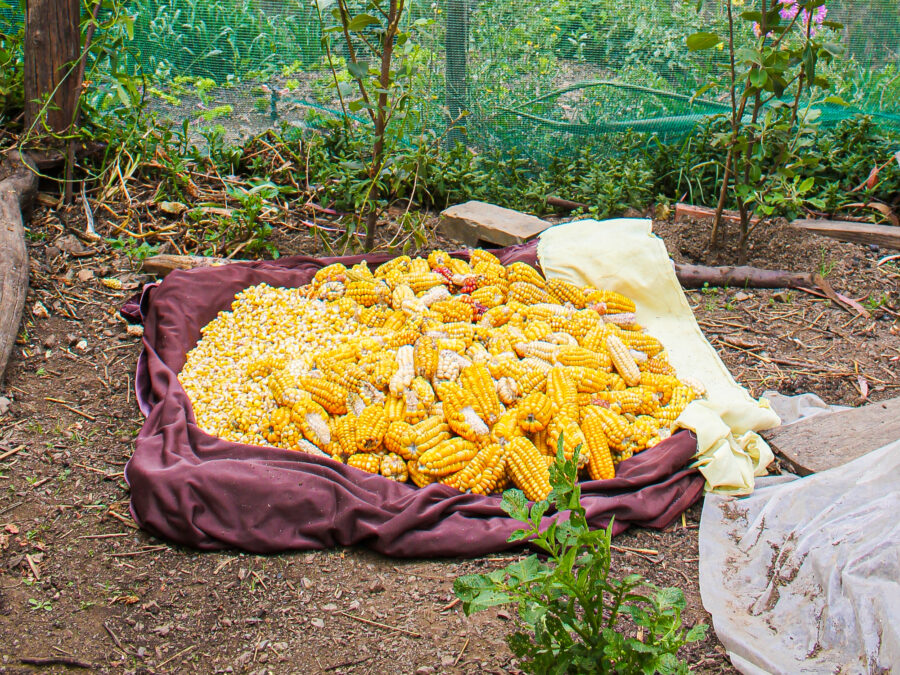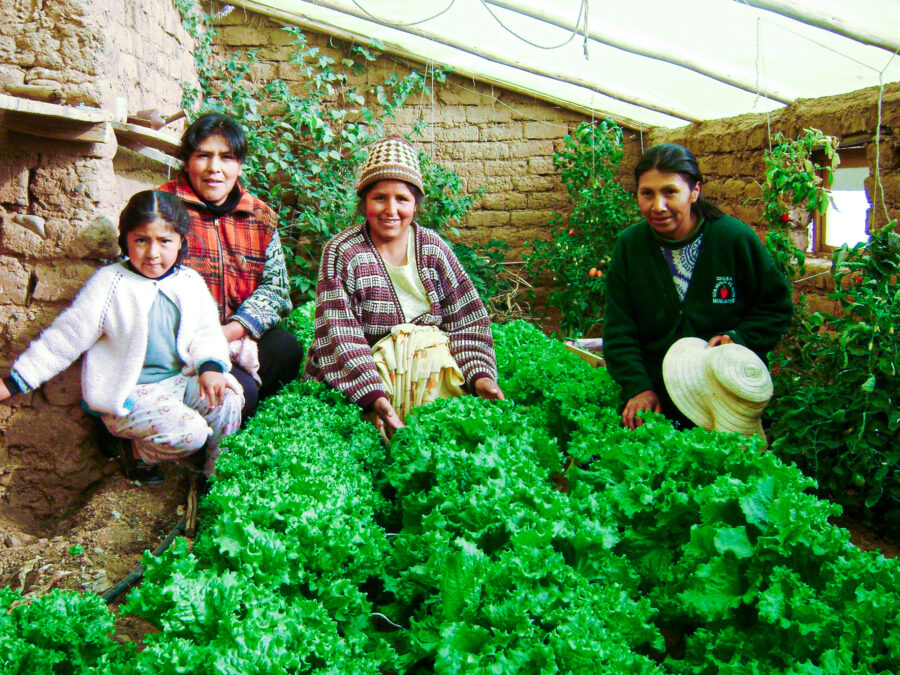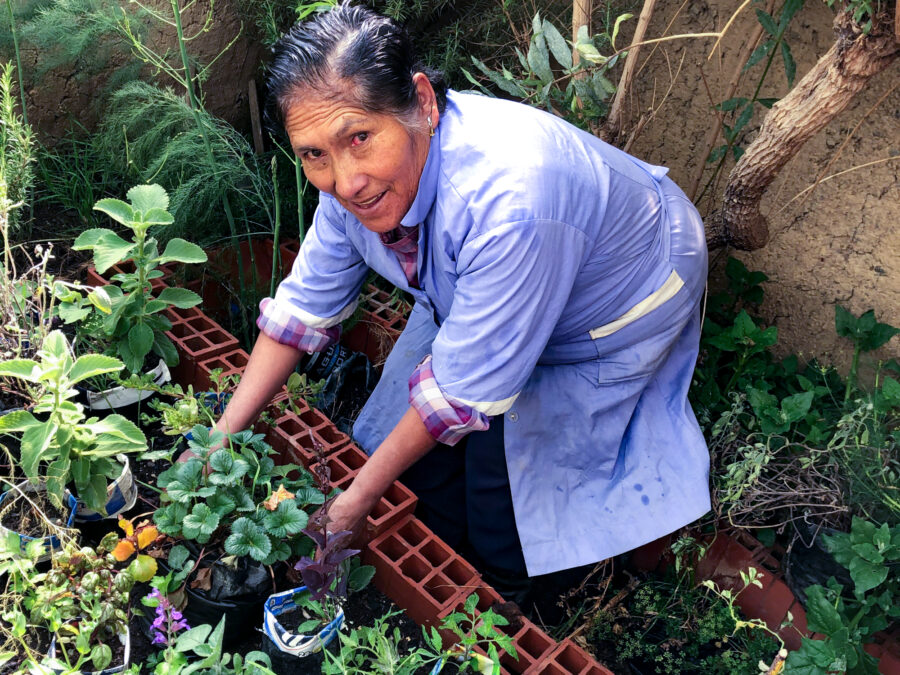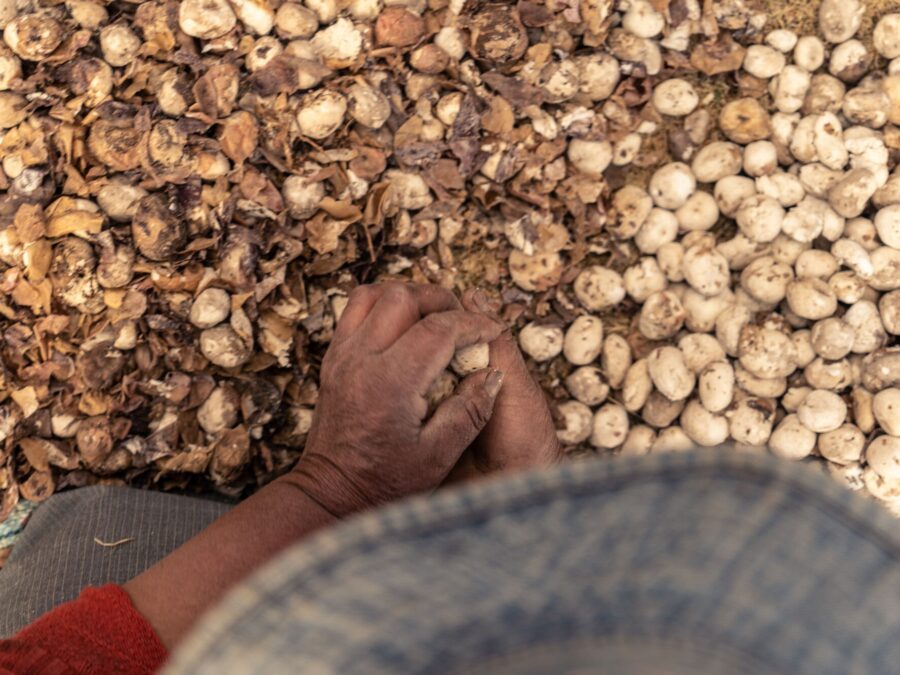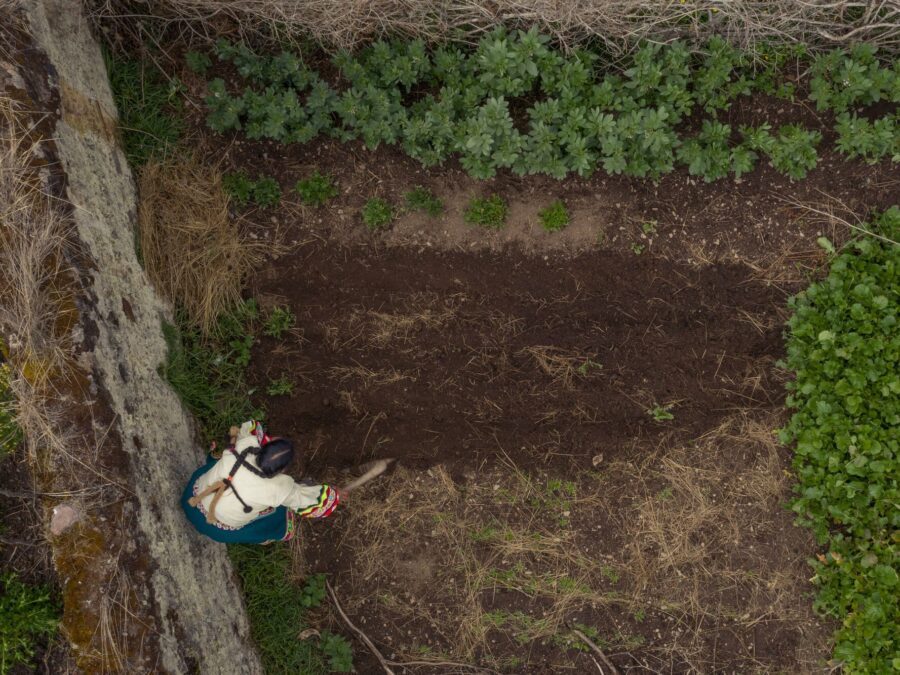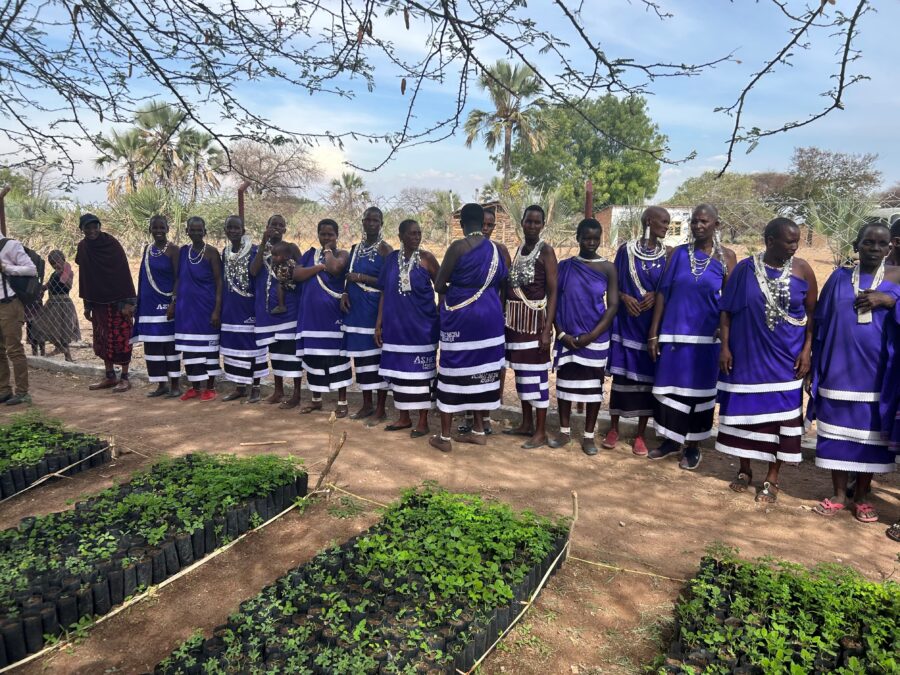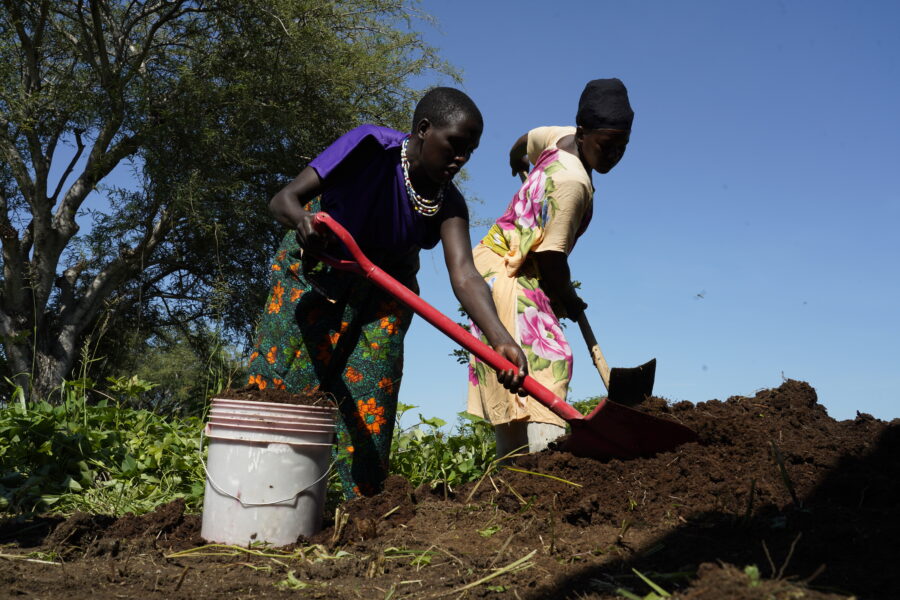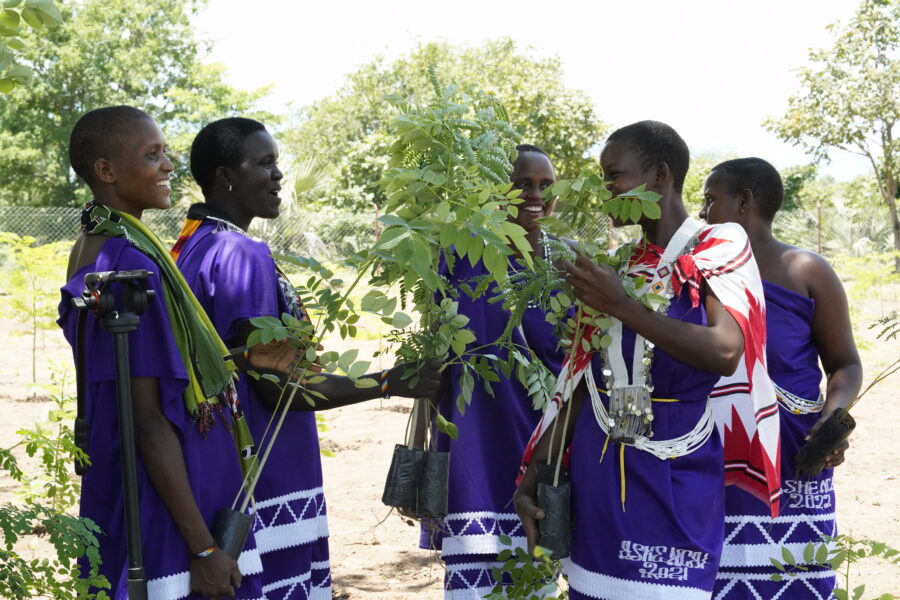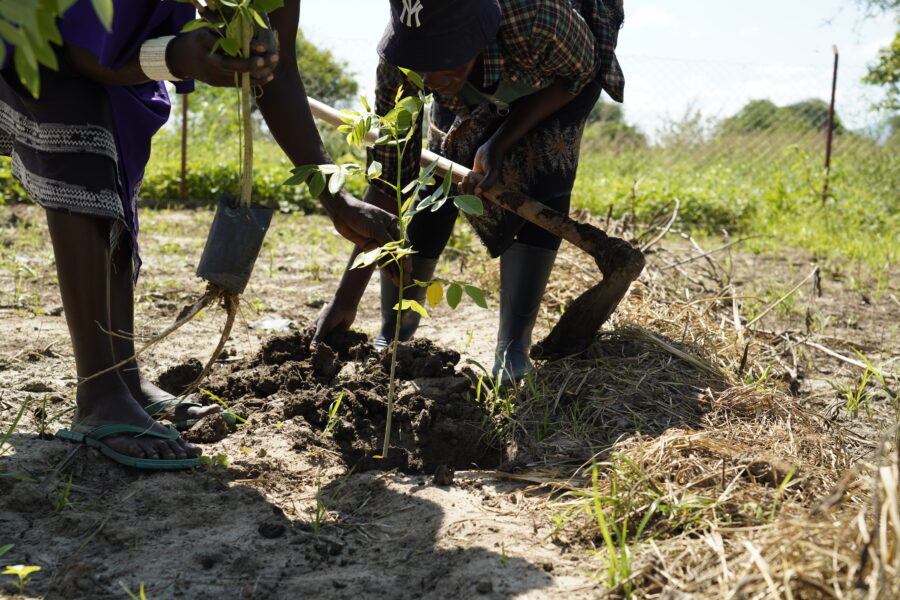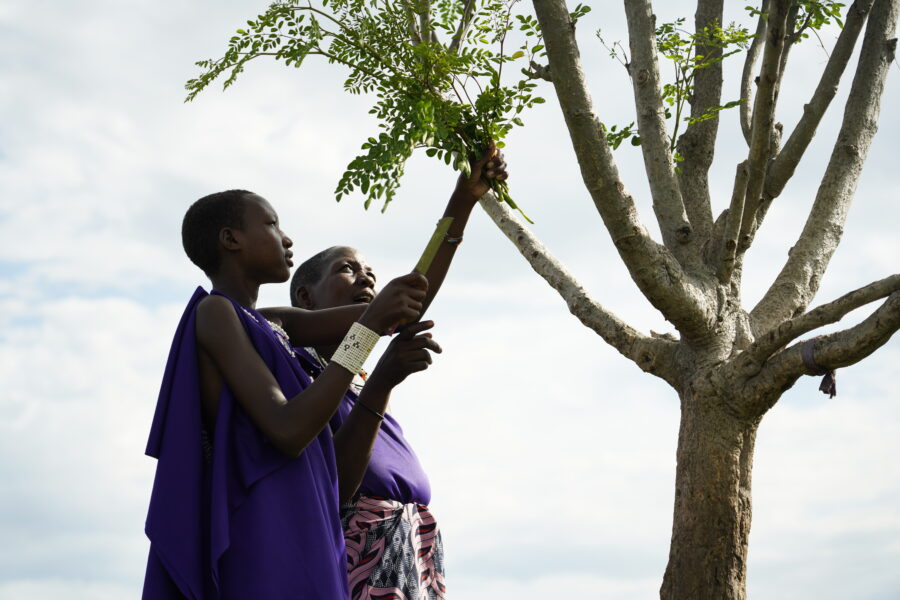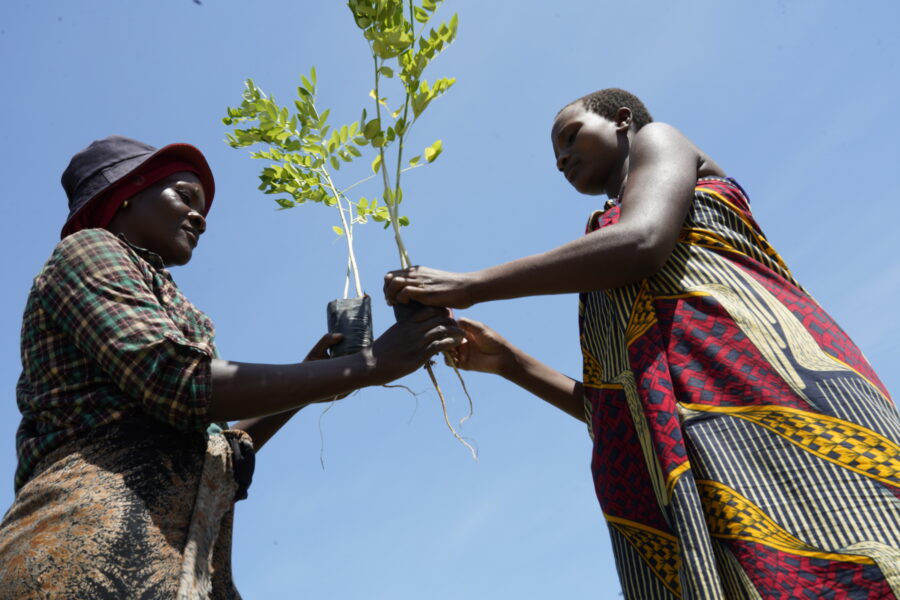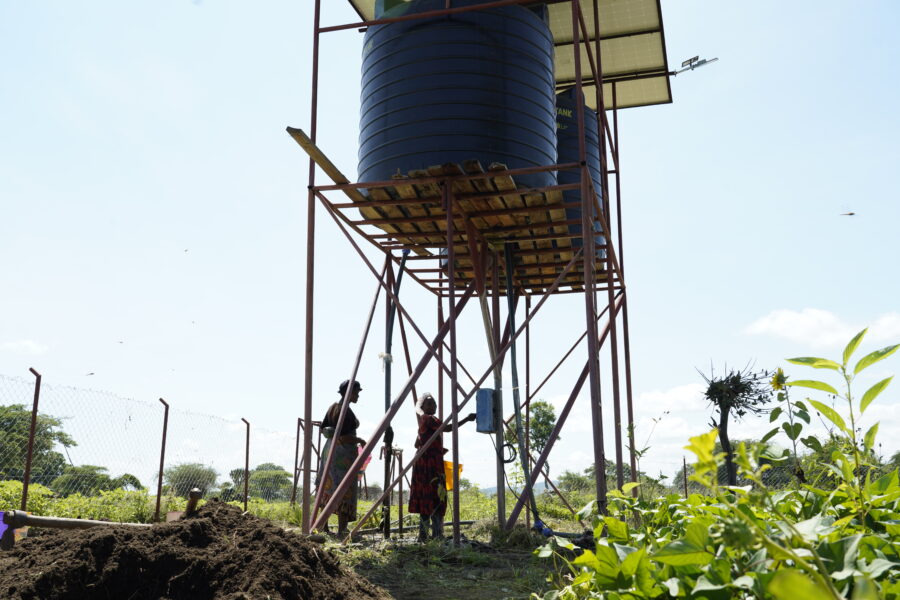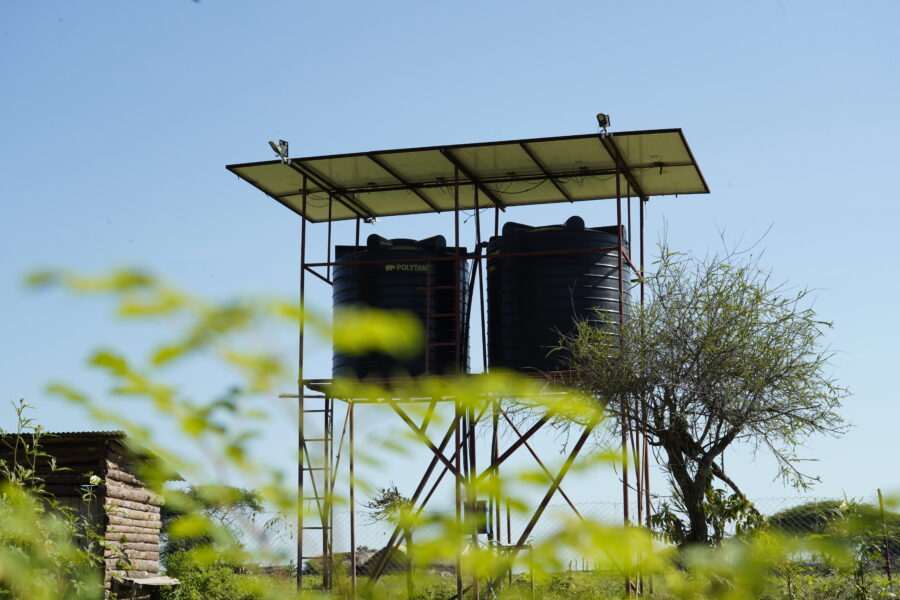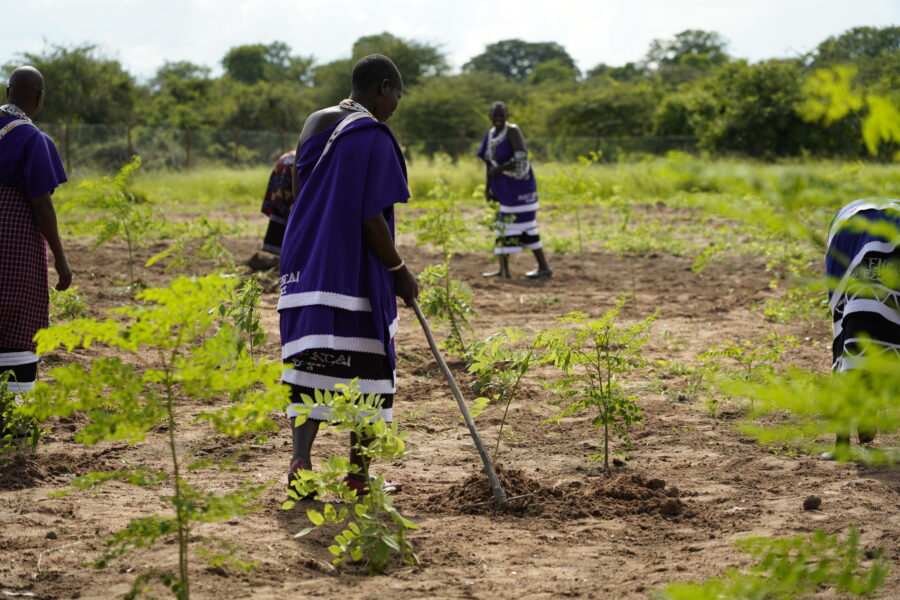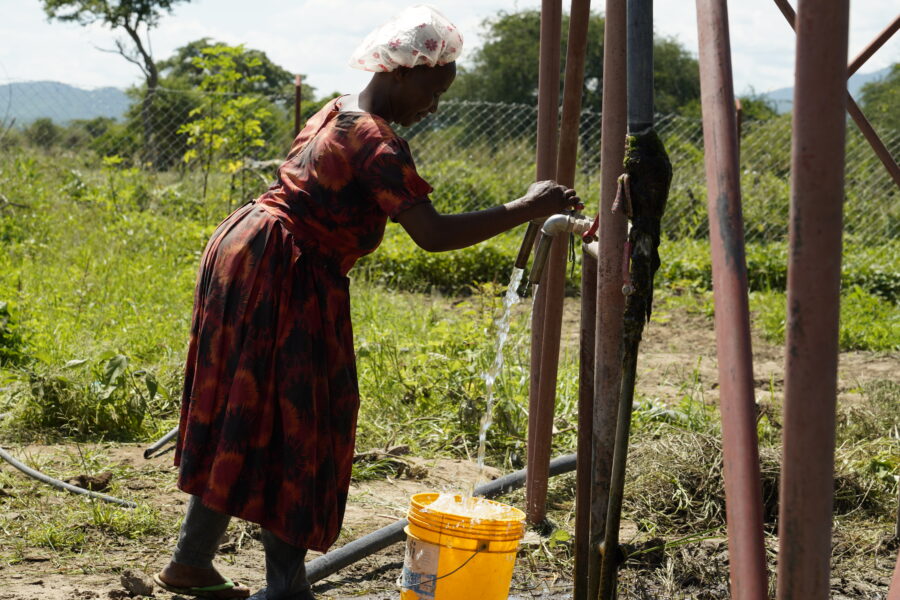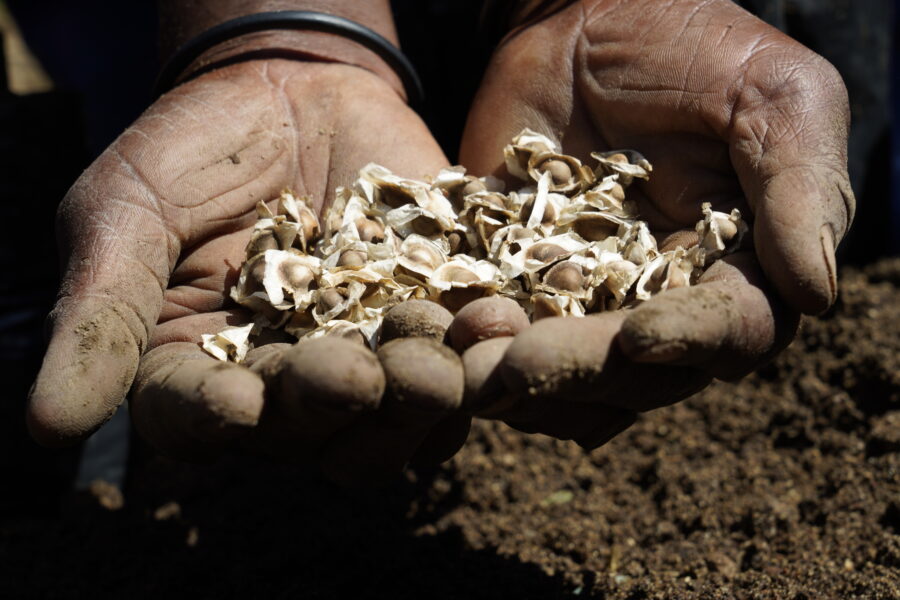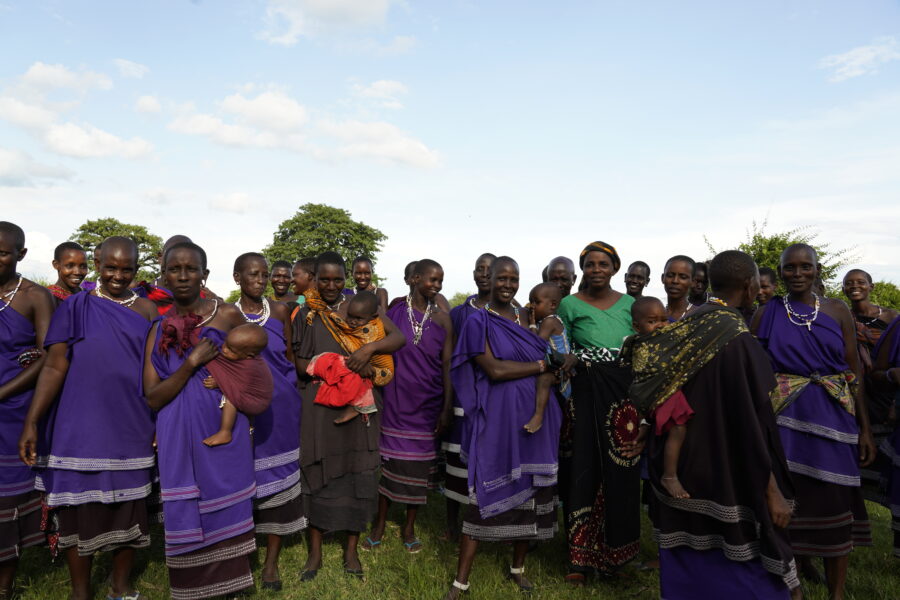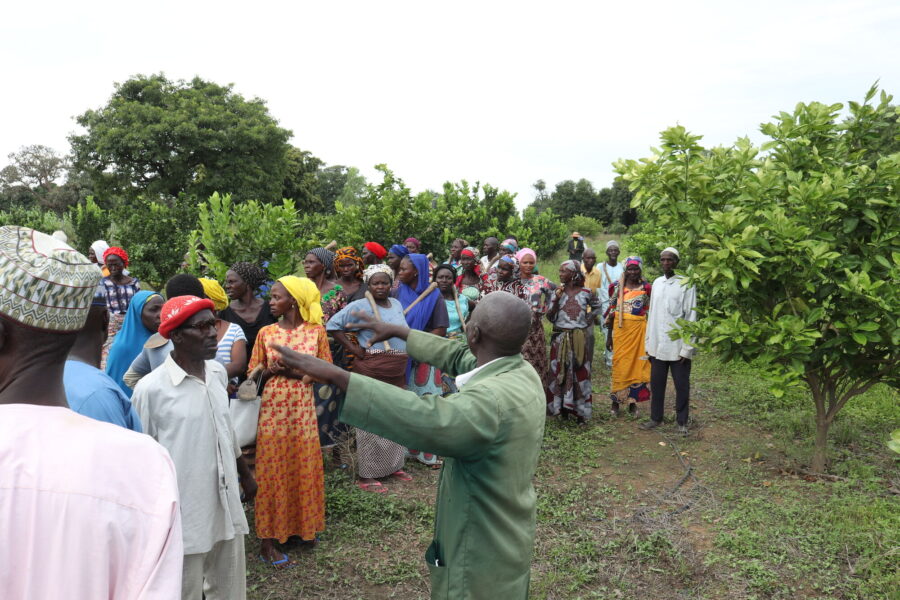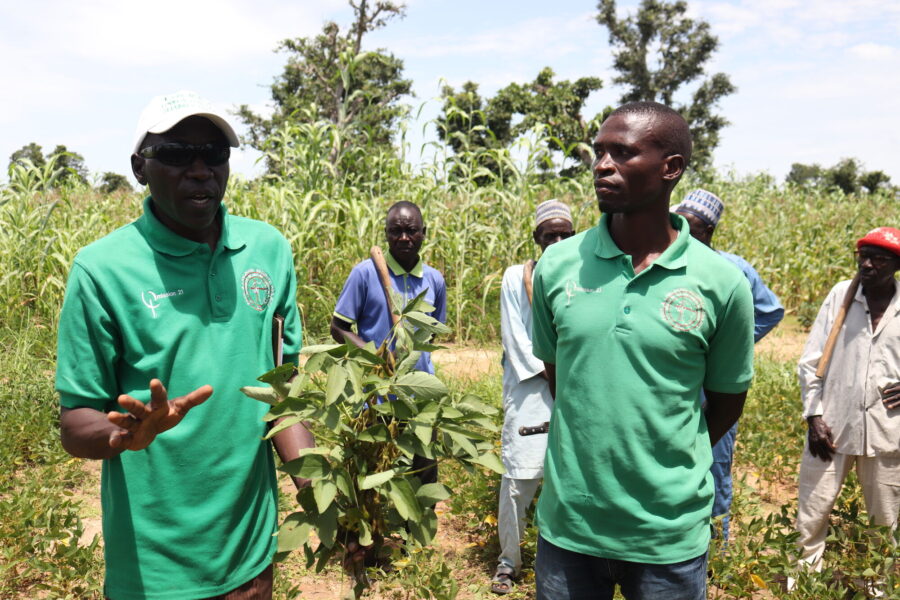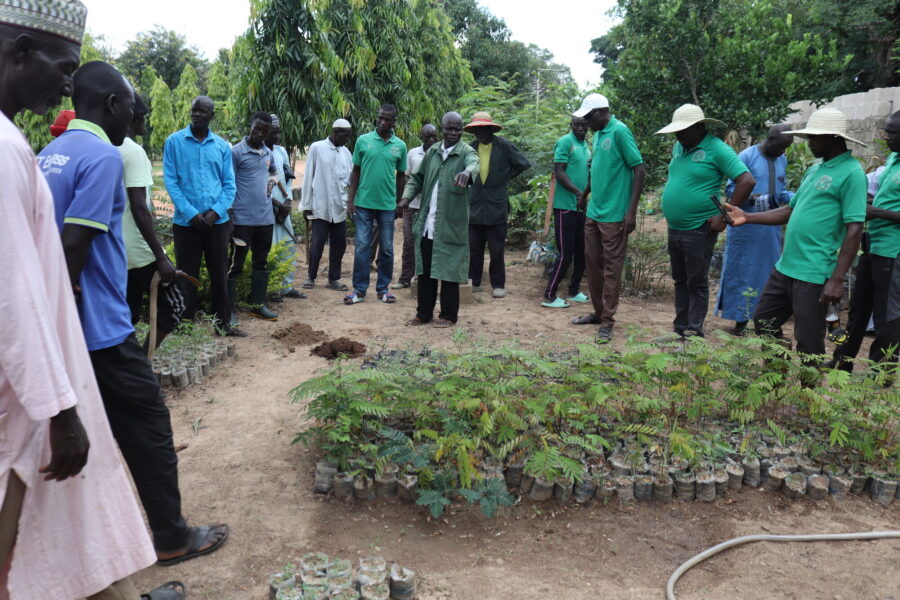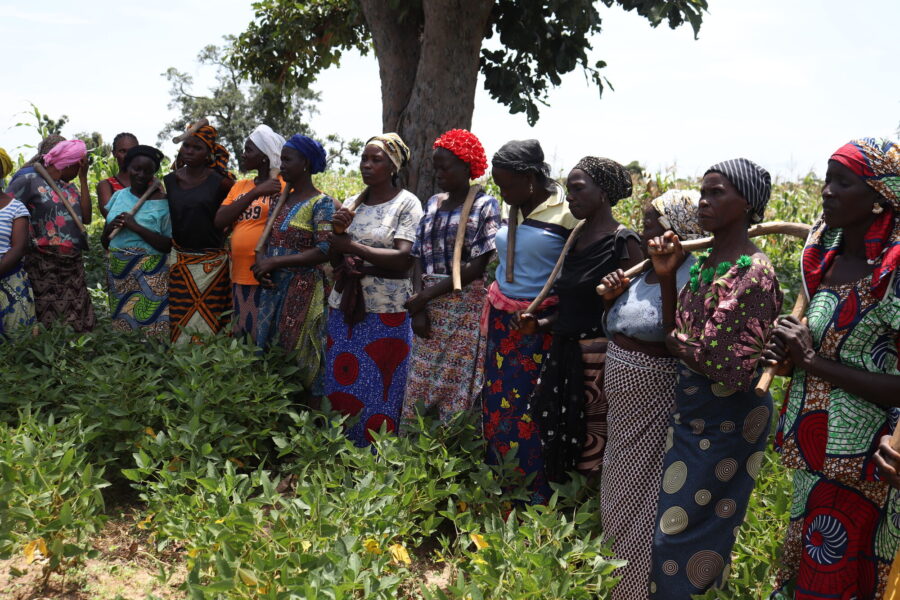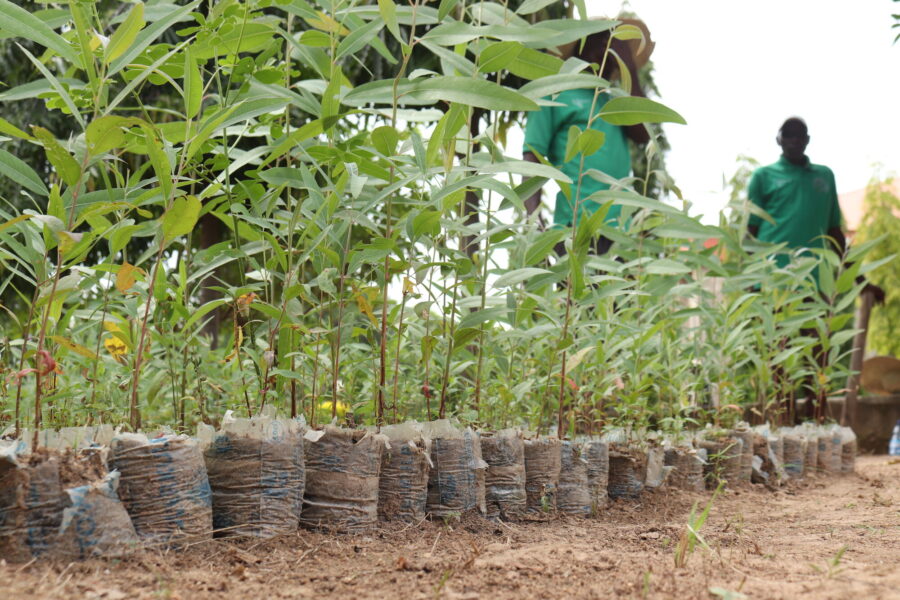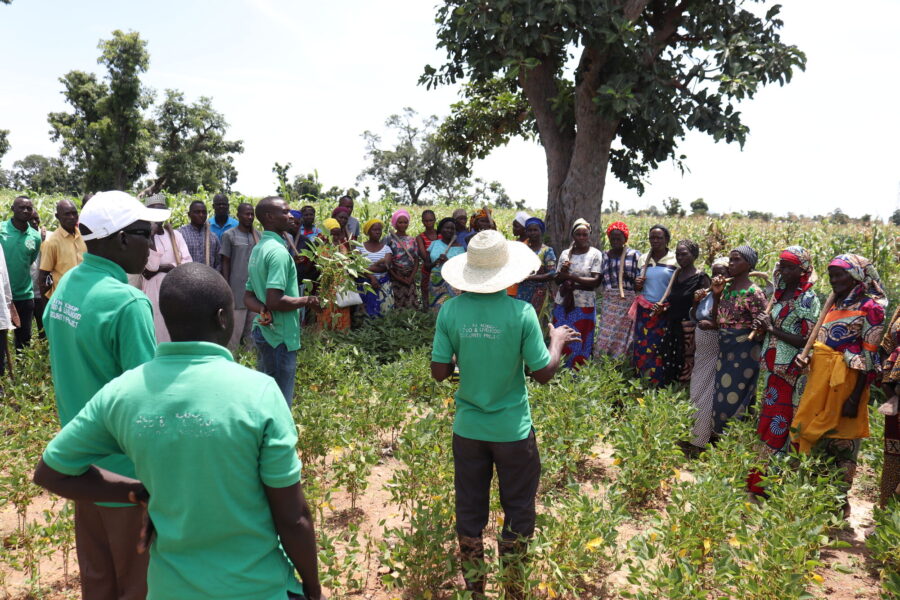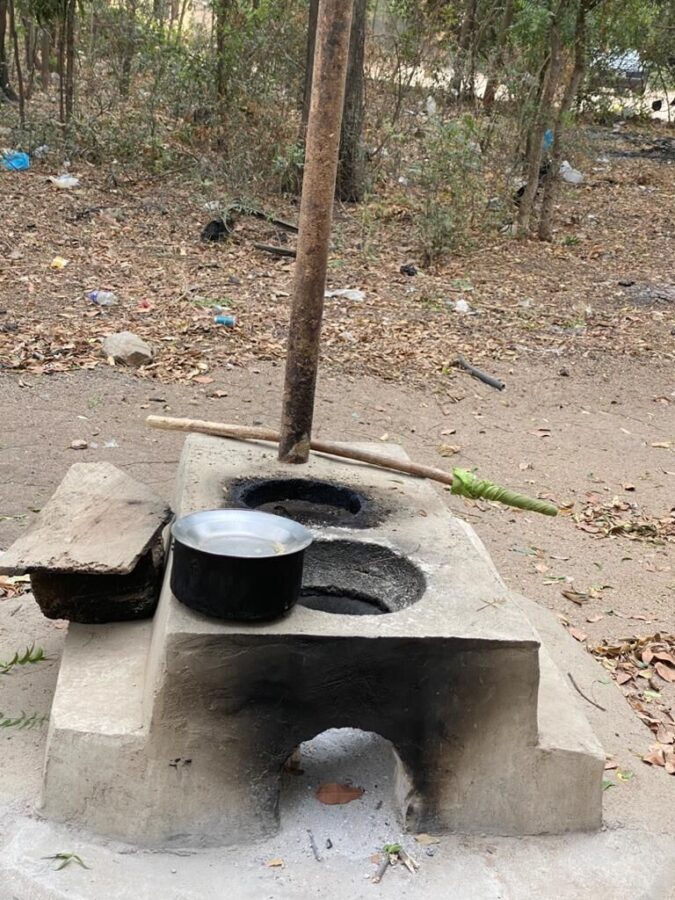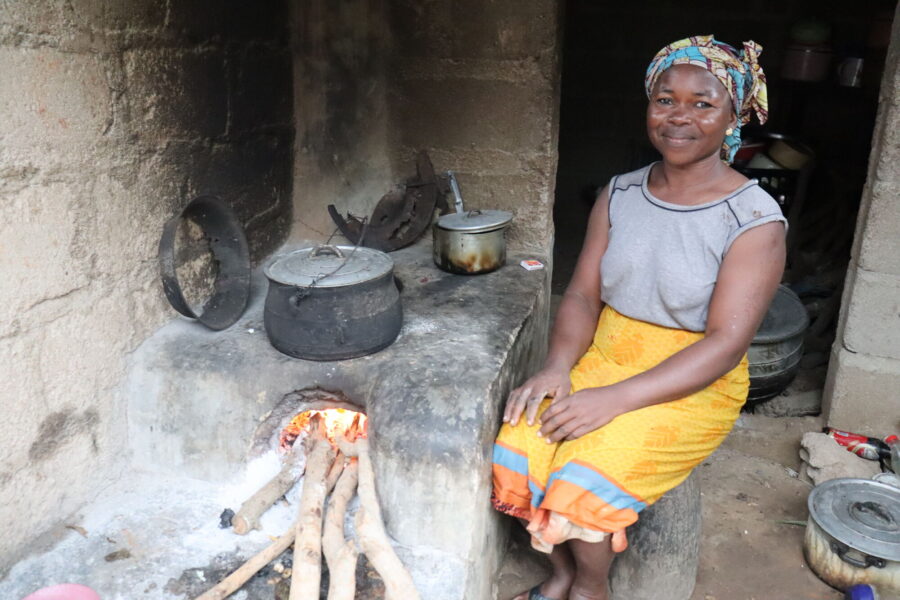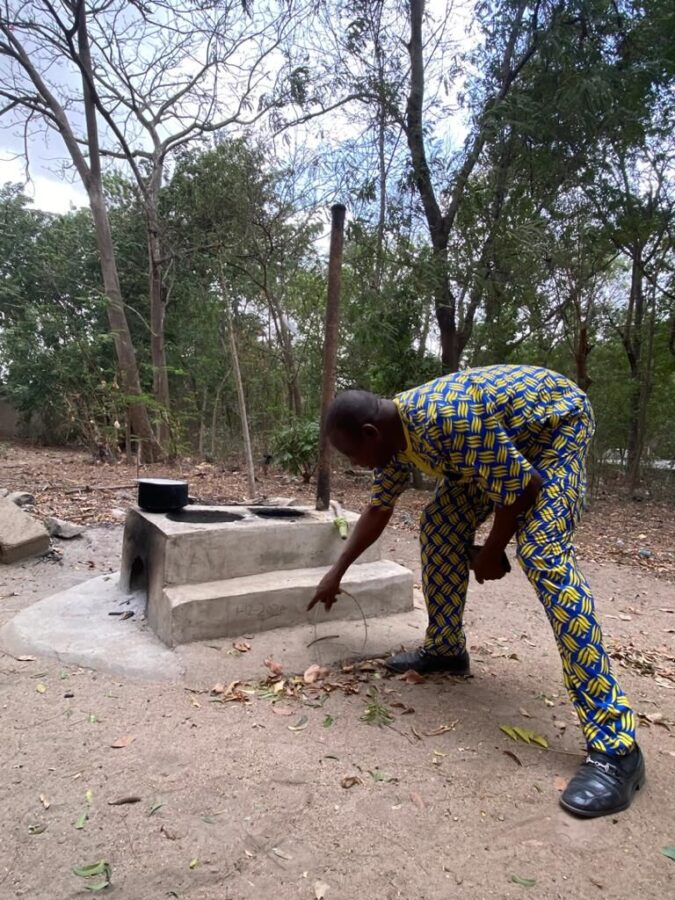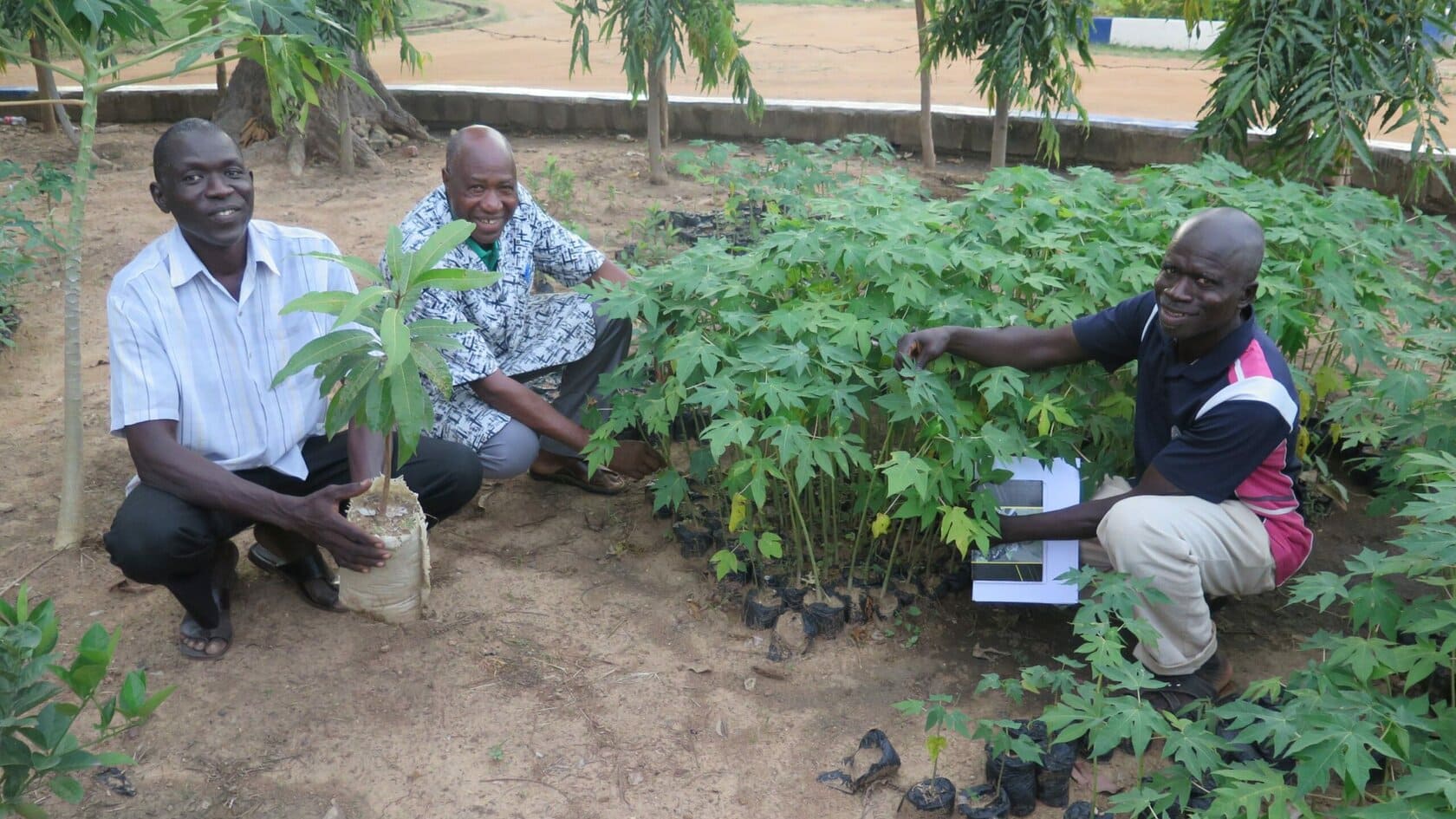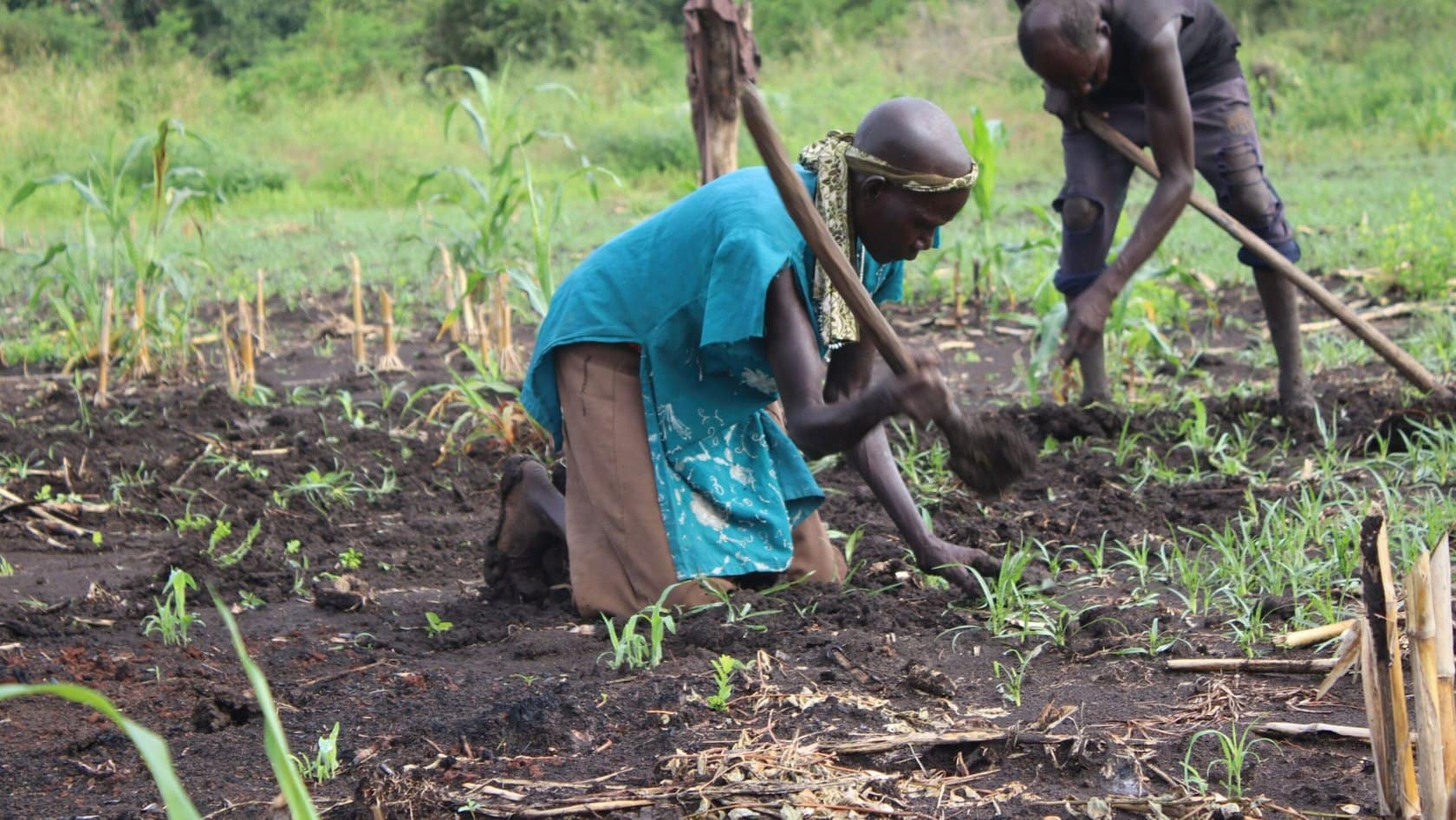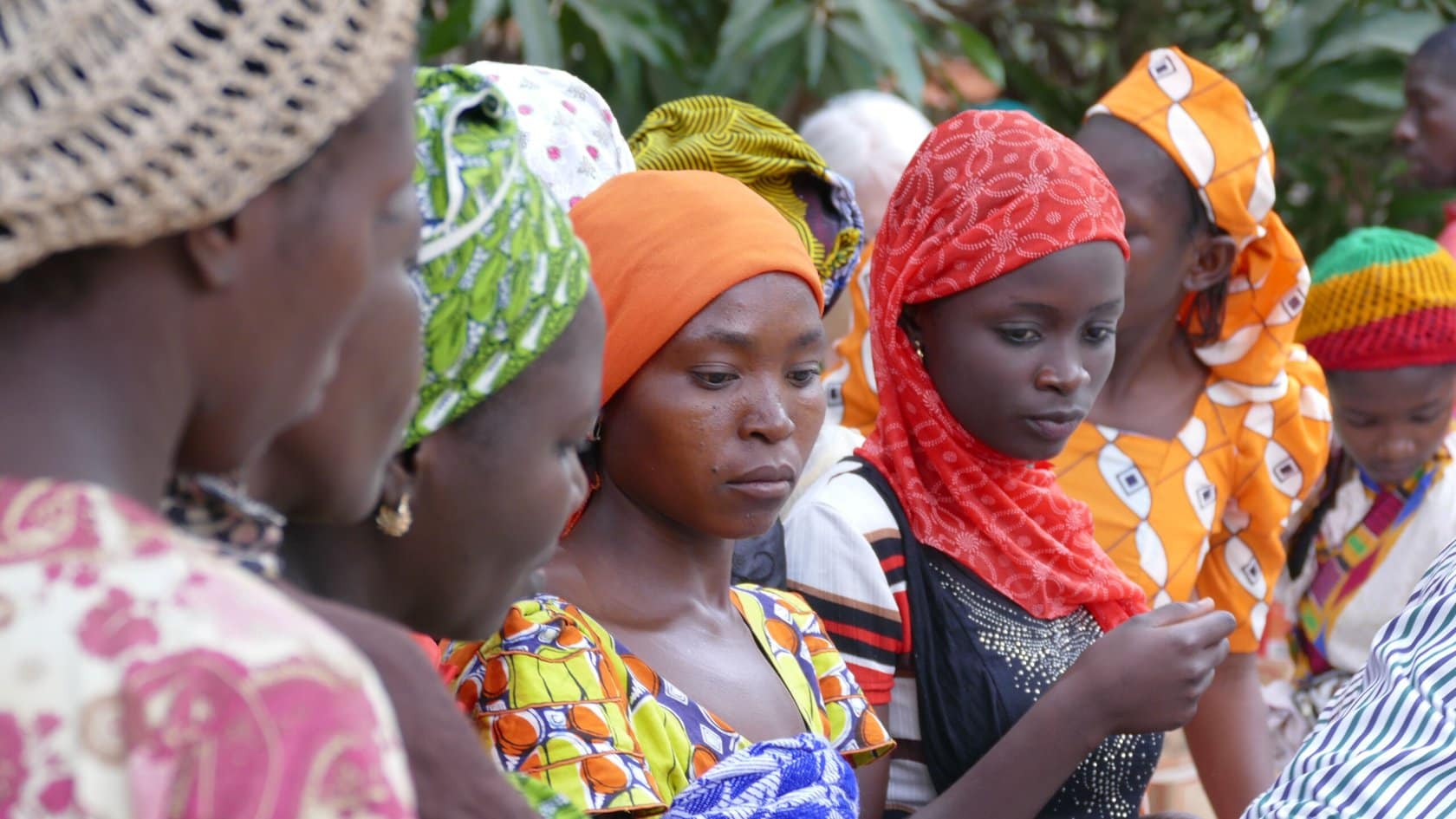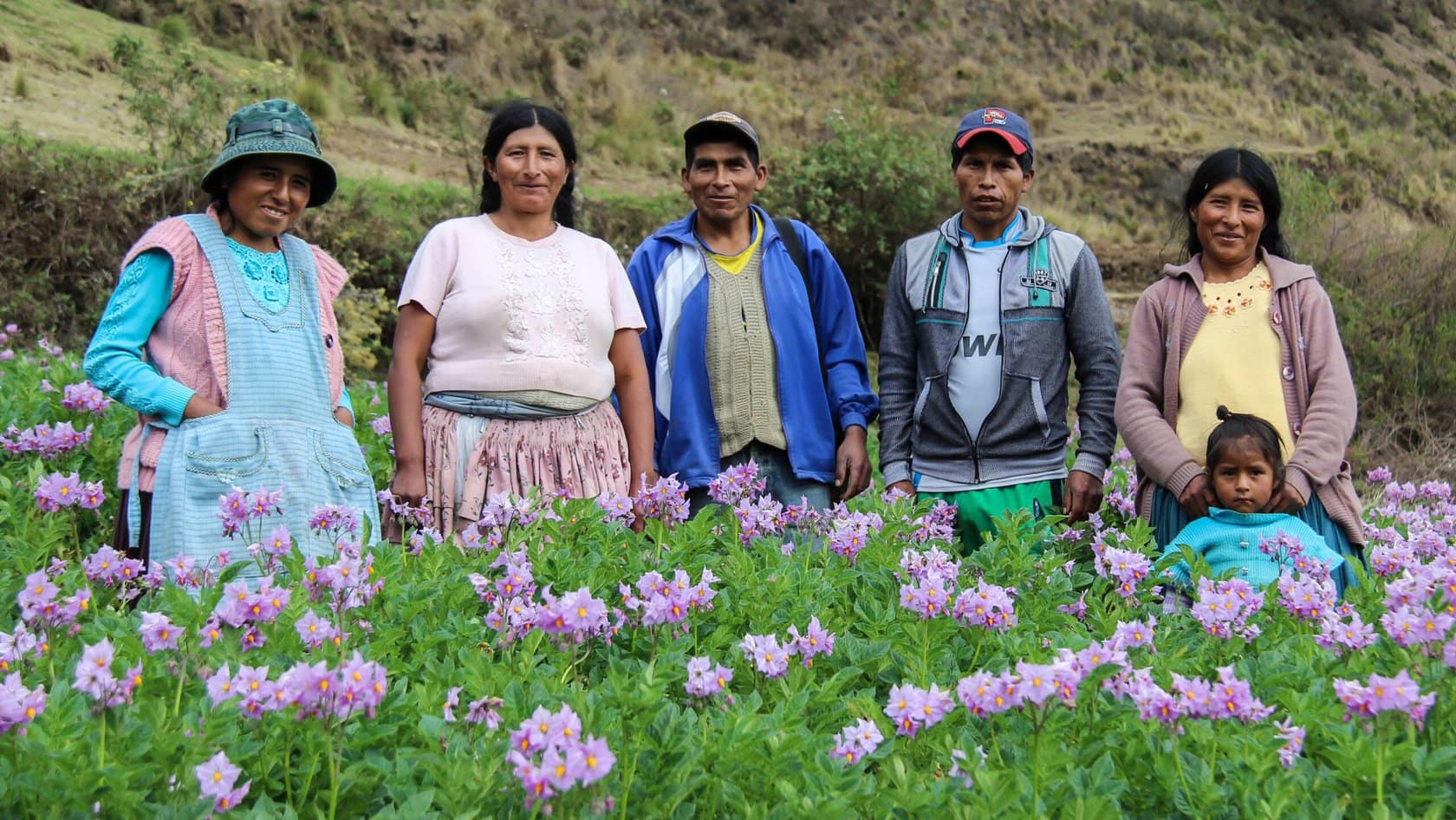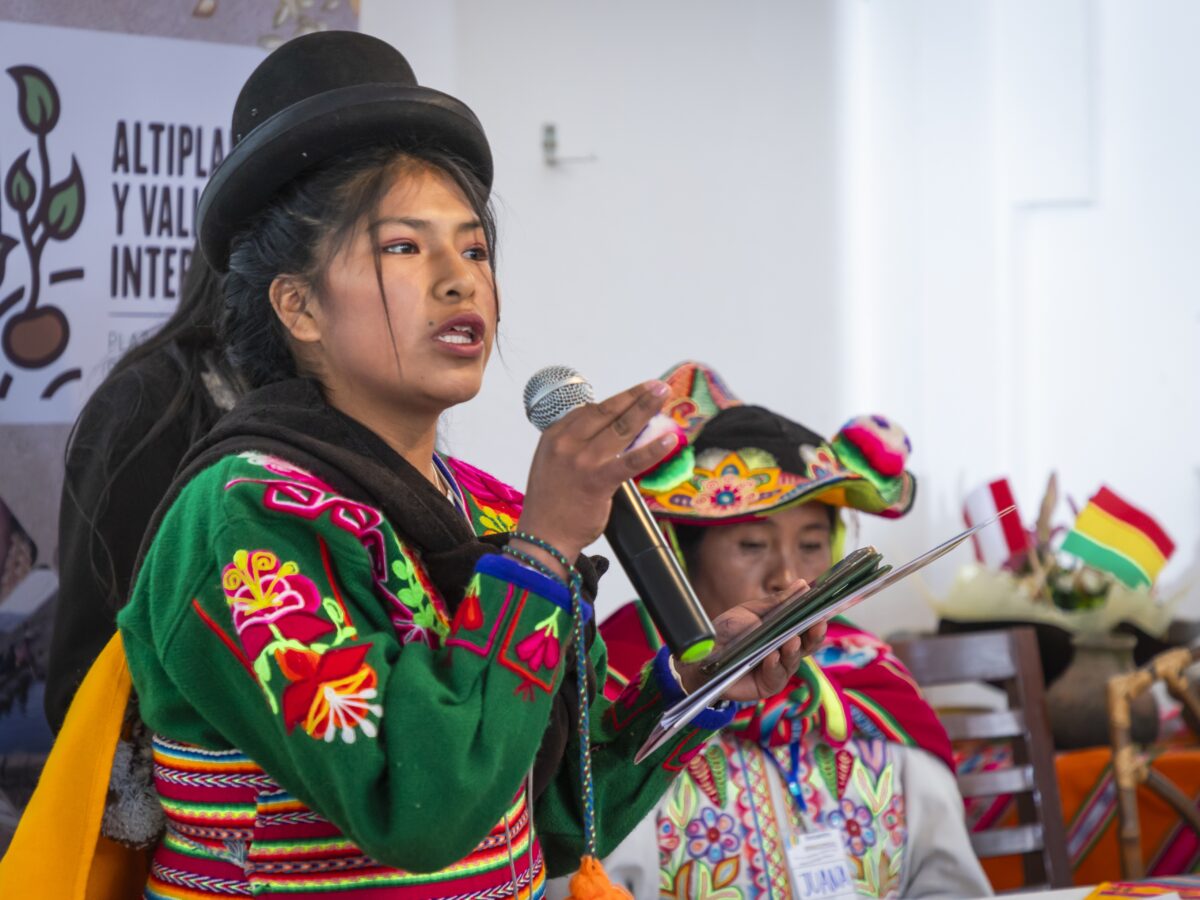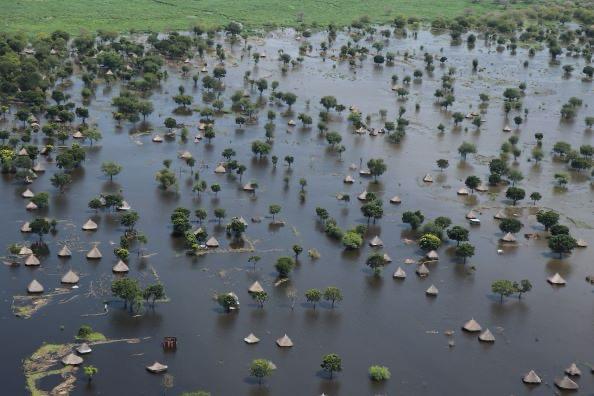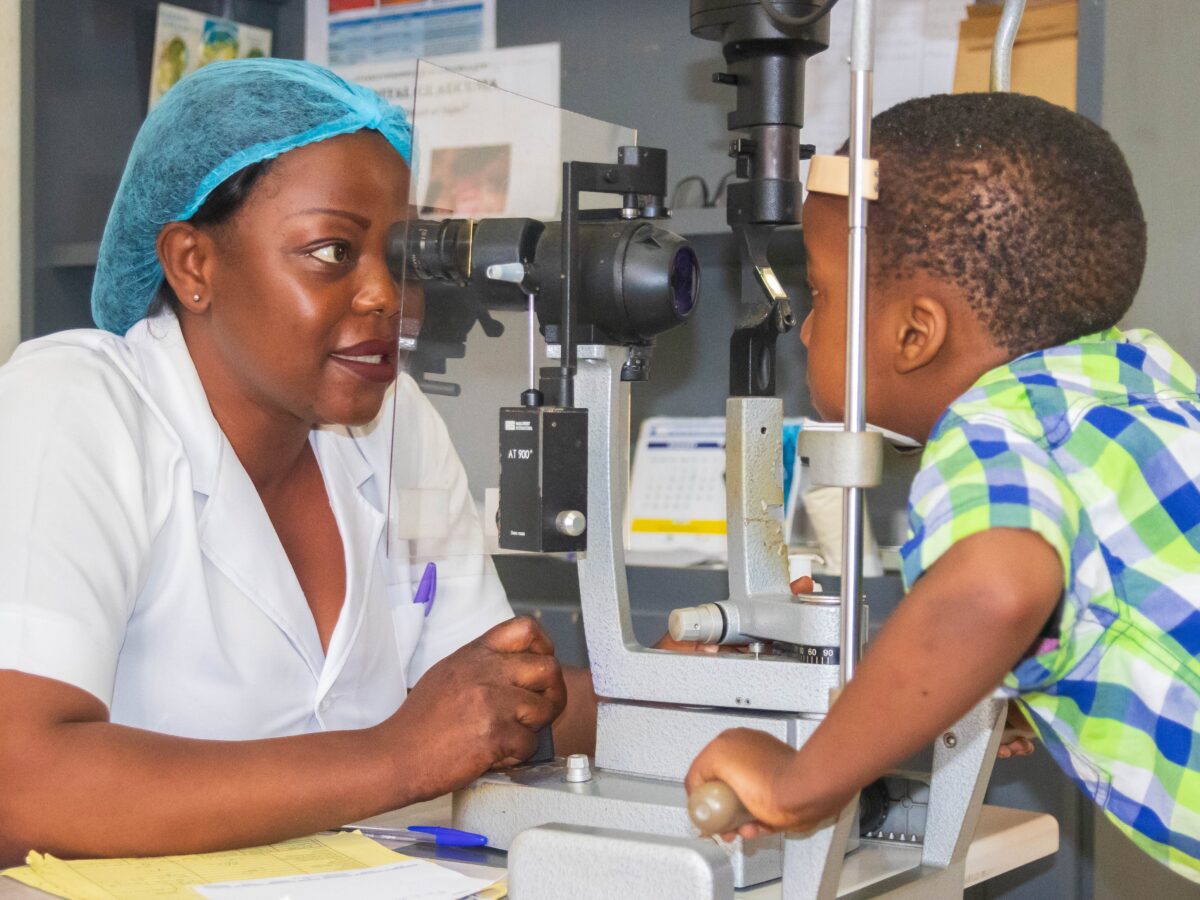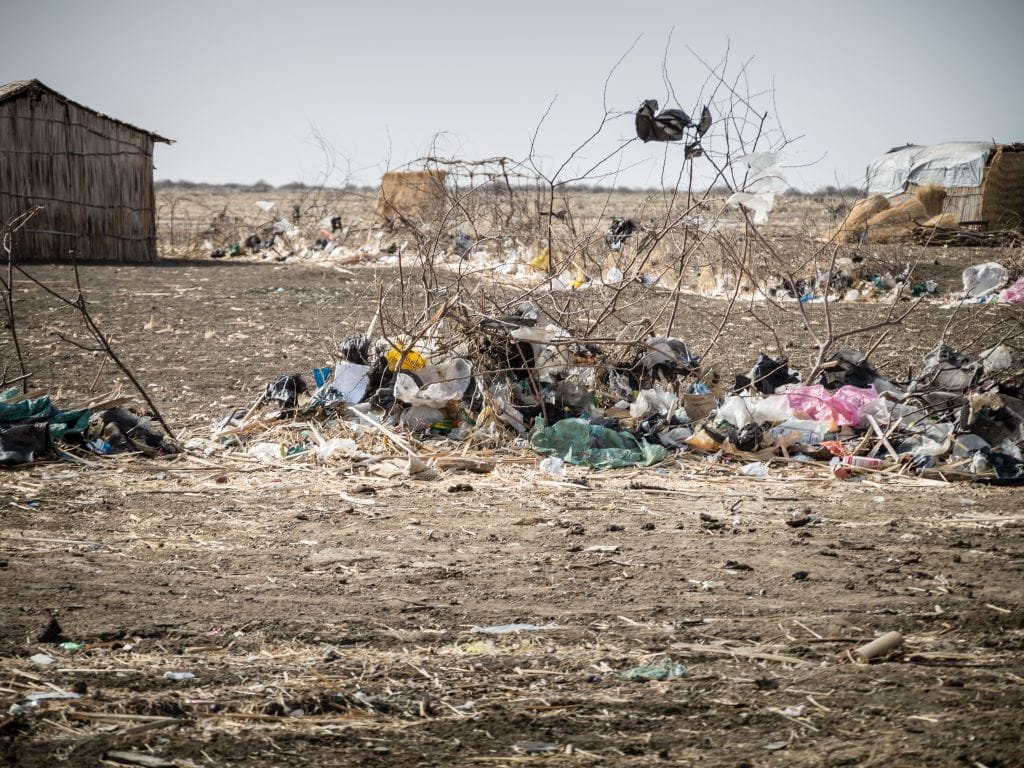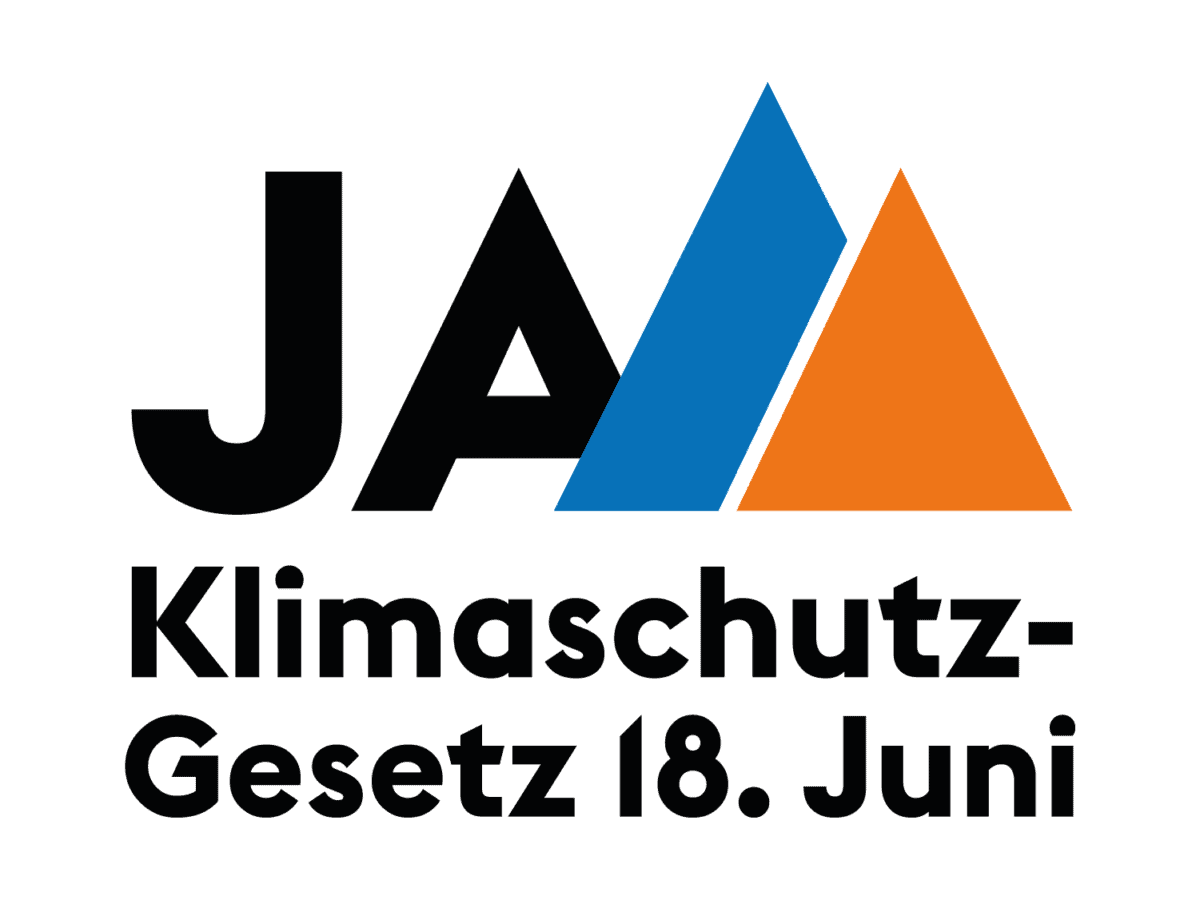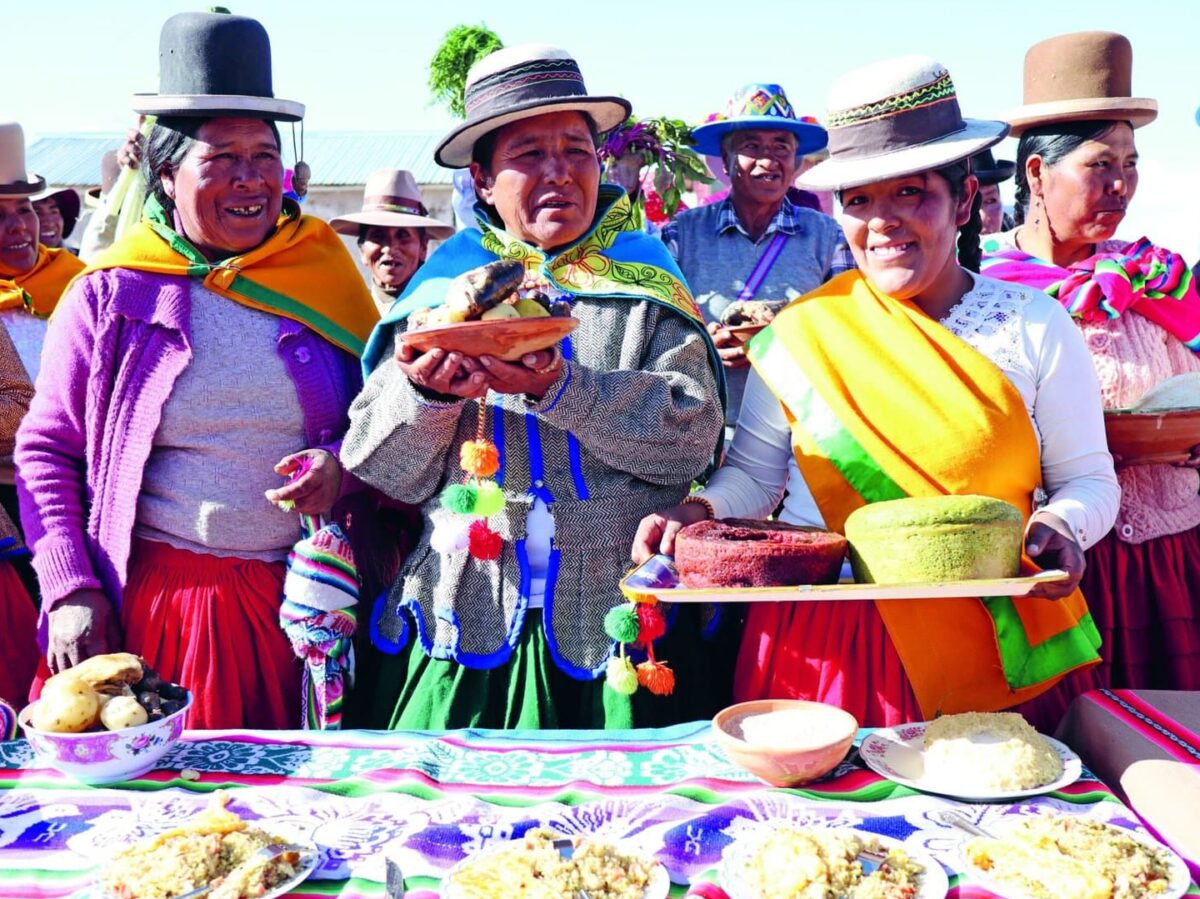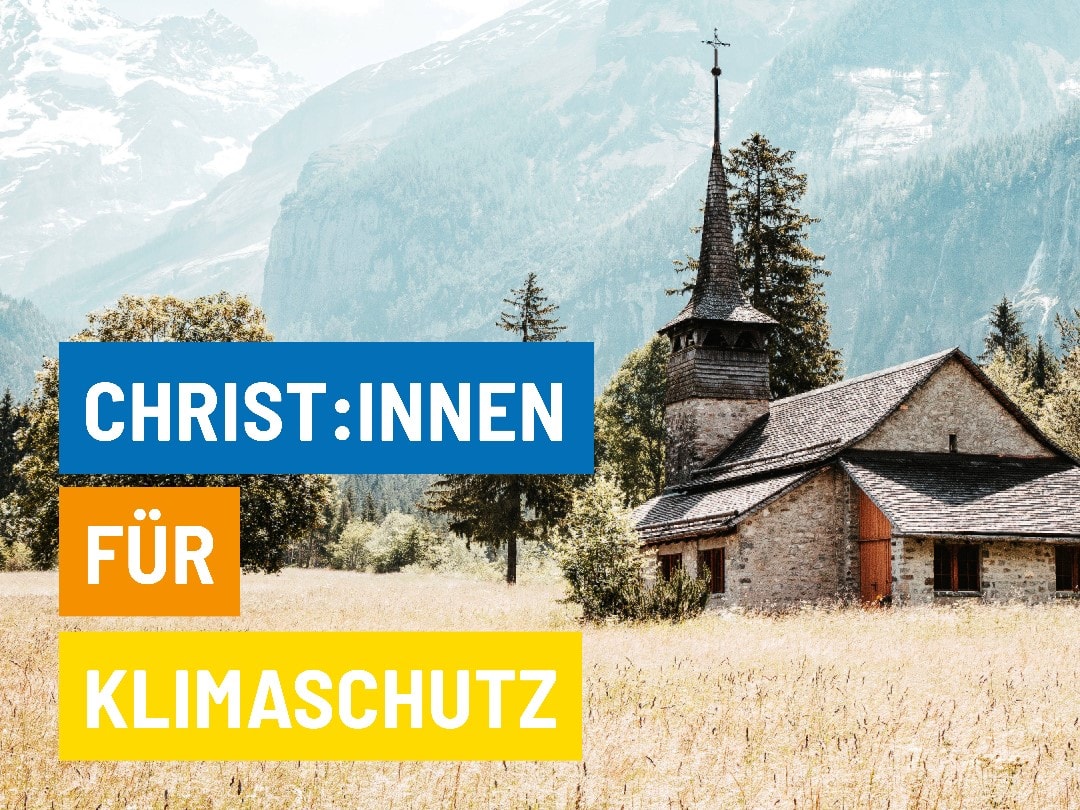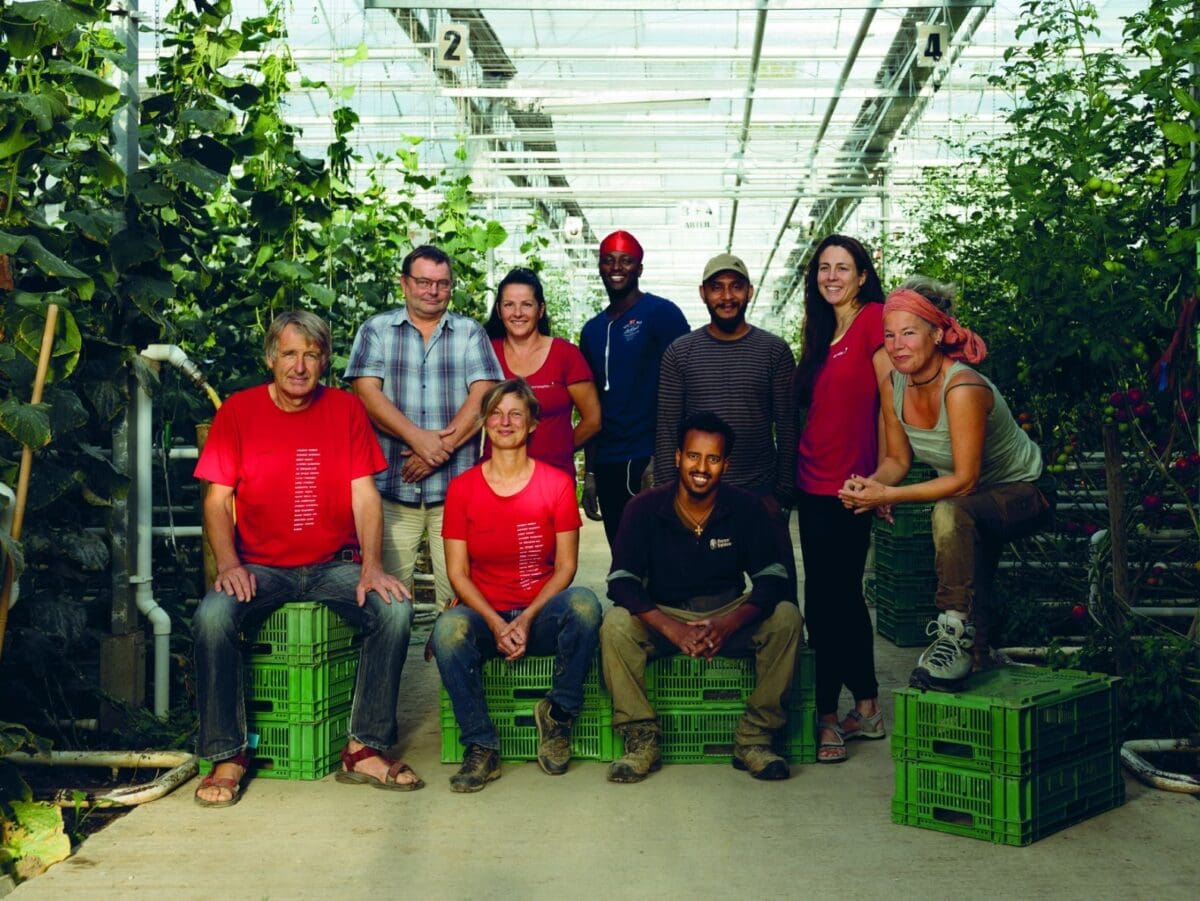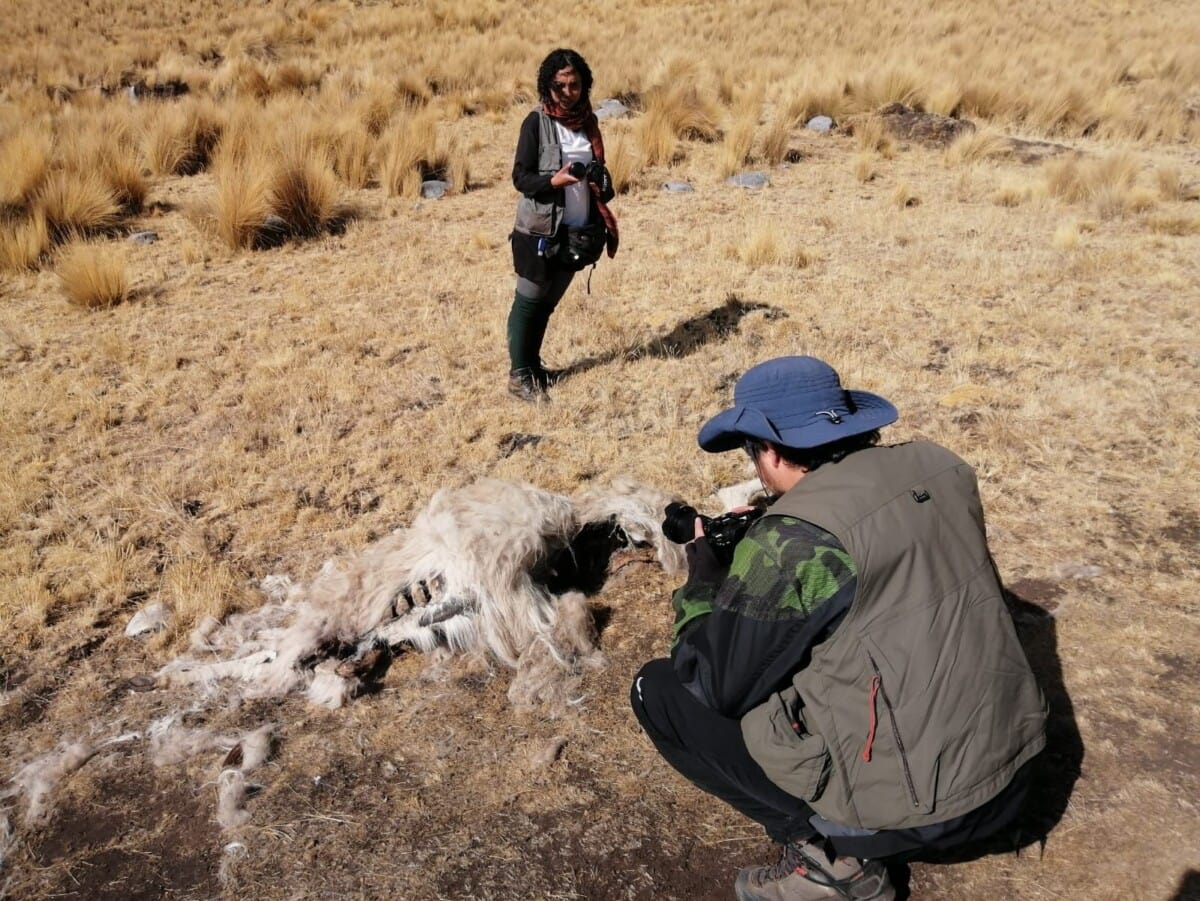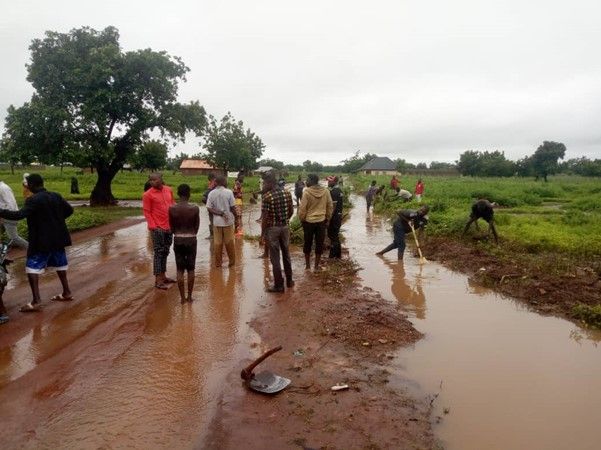Campaign 2024
September 8 - Advent 1 2024
"Learning from each other, living sustainably"
How can we support affected countries in the Global South and learn from them at the same time? How can we ourselves make a contribution to climate justice?
Both are urgently needed in a world that is increasingly affected by the consequences of global warming. In order to combat climate change, we need to reduce emissions on the one hand and work across borders on the other. Droughts, droughts and floods threaten particularly vulnerable groups in society.
Your donation to our projects for food sovereignty and climate justice will help to preserve the valuable knowledge of indigenous and farming communities in the Global South and enrich it with modern agroecological knowledge.
What does the food crisis have to do with (neo)colonial food systems? (Recording of the webinar from October 22, 2024)
According to the UN, 309 million people in 71 countries suffer from chronic hunger - predominantly women and children in rural areas. At the same time, over 900 million tons of food are thrown away every year - a quarter of which would be enough to feed the hungry. What developments have led to the global food crisis? How can food insecurity be tackled and food sovereignty be strengthened through biodiverse, sustainable local agriculture?
Campaign film 2024
Podcast "Voices of Hope" - Episode 4

"The city gardeners of El Alto"
In the megacity of El Alto, at an altitude of 4,200 meters, tomatoes, spinach and even strawberries thrive in small greenhouses. Perpetua Valencia and Maria Tonconi, two of the city gardeners, explain in Hildegard Willer's podcast how they have learned new ecological cultivation methods thanks to training courses with "Focapaci", Mission 21's partner organization.
So that you can inform and raise awareness in your parish, we will support you during our 2024 campaign with presentations by our experts and international employees, with our suggestions for worship services or lessons or with ideas for activities on the campaign theme.
It would be great if we could work together for food sovereignty worldwide. Thank you very much.
Receive campaign info by mail
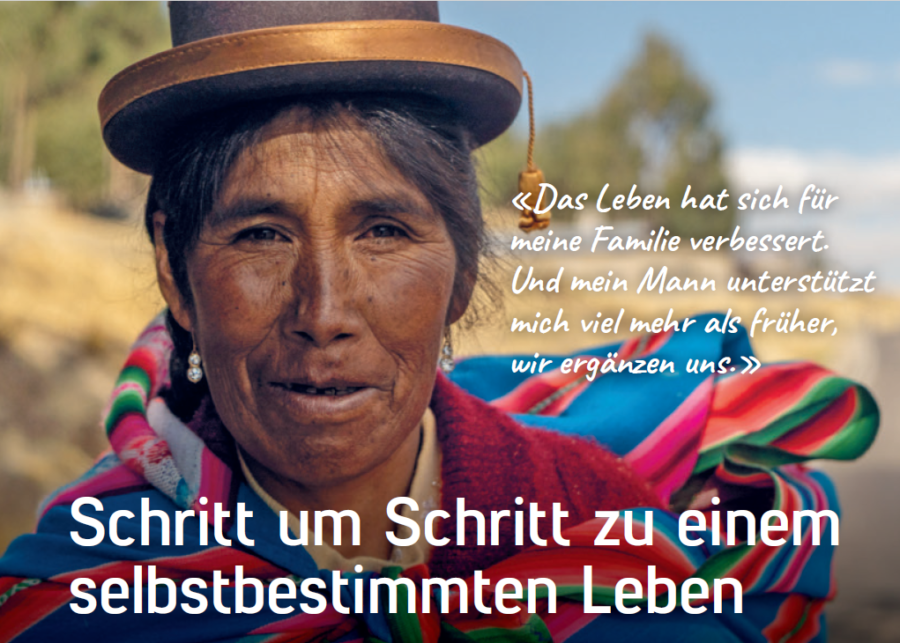
From reserved gold prospector to self-confident vegetable farmer: Peruvian Elva Apaza Quispe has changed. Thanks to her roots in Andean culture - and thanks to the impetus and further training provided by our partner organization CEDEPAS-Centro in Peru.
Elva Apaza Quispe's everyday life used to be gray and uncertain. Her family of eight lives near Arapa, north of Lake Titicaca. Here in the high Andes of Peru, at almost 4,000 meters above sea level, the soil is barren and Elva struggled to grow anything: "We could only harvest onions and a little lettuce. We didn't know how to achieve a sustainable yield." To earn money for food and school fees, Elva therefore worked for months in the
Mining town of La Rinconada, around three hours by bus from their home at an altitude of 5,100 meters.
Today, Elva grows enough vegetables for her family to eat regularly. She sells the surplus and earns some money. The boiler provides hot water for showering and cooking and this has had a positive effect on the health of the family, especially the children.
→ Read the full story of Elva Apaza Quispe in our campaign ideas booklet on page 8.
Facts and figures on nutrition
Although enough food is produced worldwide, millions of people still suffer from hunger. Mission 21 has set itself the goal of promoting food sovereignty through further training in agroecological farming methods, while respecting the valuable ancient knowledge of indigenous and farming communities. In this way, soils and fields can be cultivated in harmony with nature, climate-damaging greenhouse gases can be bound into the soil and new food systems can be created with local seeds, organic fertilizers and small winter gardens, which provide families with nutritious food in the long term.
The facts are alarming: nearly 830 million people worldwide suffer from chronic hunger and 193 million are at risk of acute hunger. Two billion people are affected by malnutrition. All of this particularly affects women in rural areas: around 75 percent of those affected are women. Action and especially support for women is urgently needed.
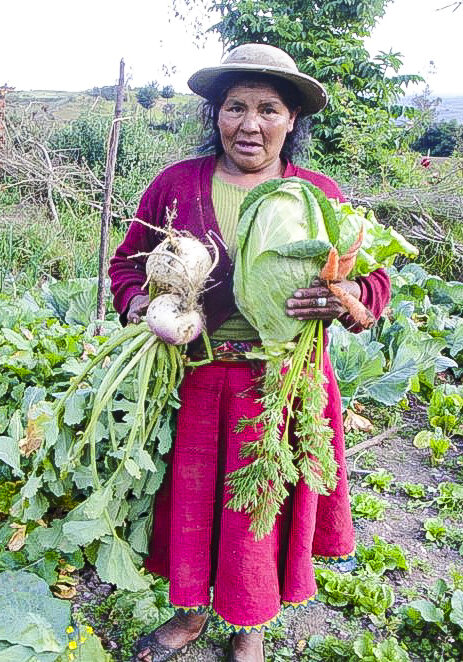
What is food sovereignty?
Food sovereignty means that all people should have access to a just food system. They should be able to produce sufficient nutritious food locally and sustainably. To this end, traditional, indigenous knowledge should be renewed and supplemented with current ecological knowledge. This would also strengthen democracy and self-determination.
Mission 21 and its partner organizations link this concept to the following goals:
Smallholder families produce high-quality food according to agroecological principles and eat a healthy and balanced diet all year round.
The families cultivate the fields in a resource-conserving manner and in harmony with nature. Soil and water management is sustainable and takes into account new challenges in the context of climate change.
Women and men participate in political processes at local and regional level to promote agroecology and food sovereignty. Equal opportunities for women and their participation in decision-making processes are particularly promoted.
Where production surpluses occur, families receive further training and support in marketing the products and income generation.
Doc Series: Food Sovereignty in the Andes
Watch our 5-part documentary on our food sovereignty projects in the Andes here.
Part 1
Part 2
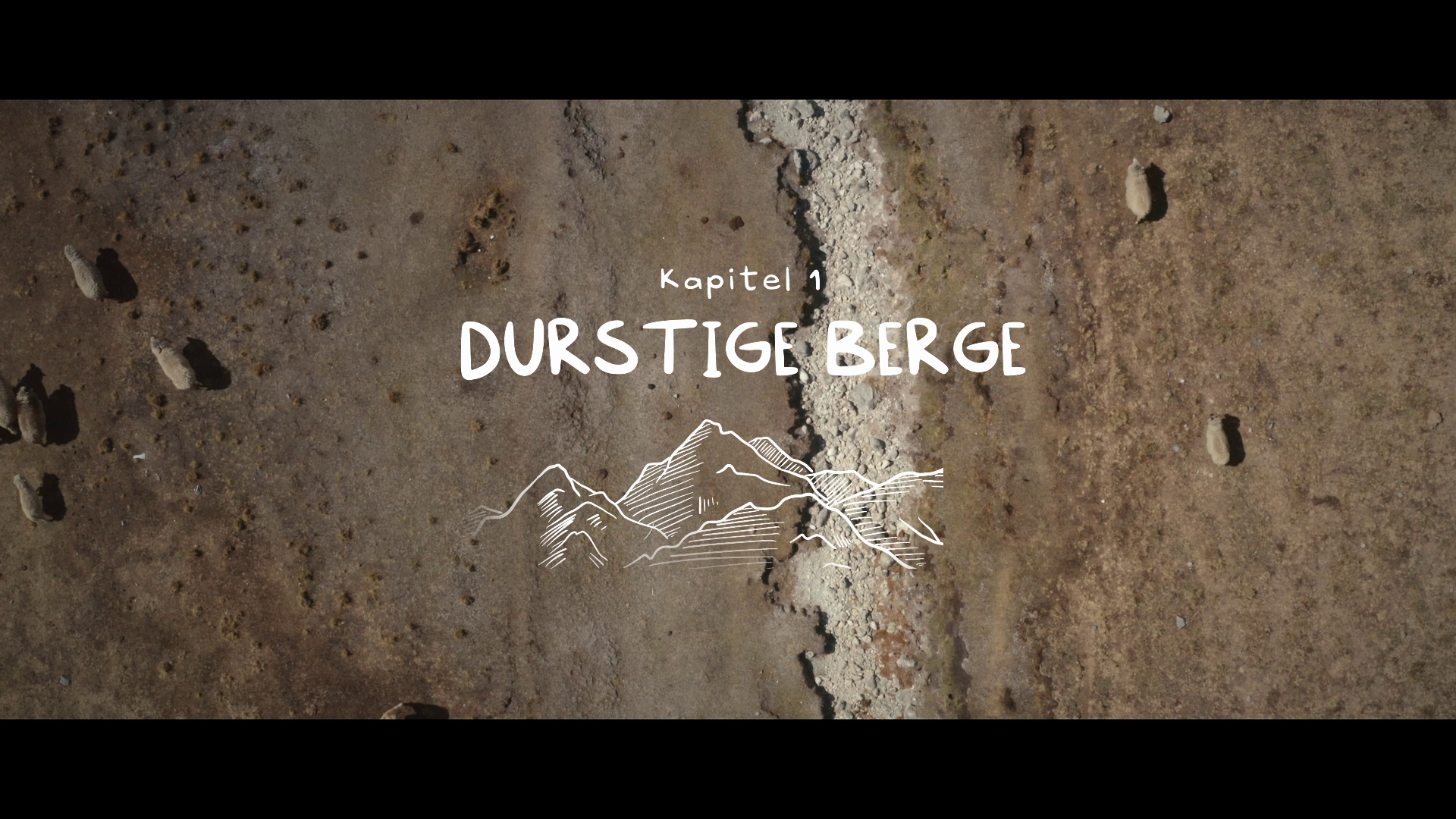
Part 3
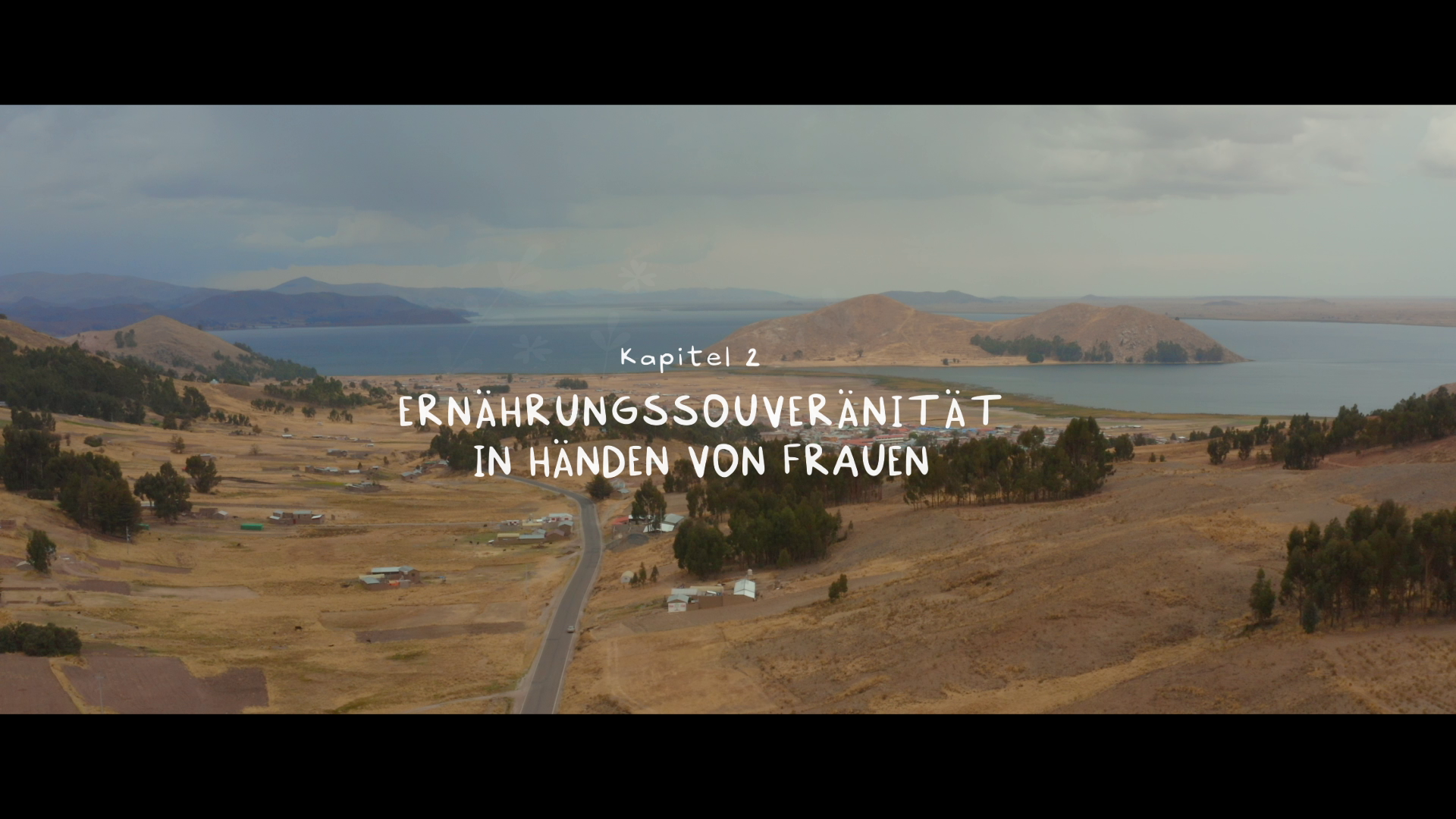
Part 4
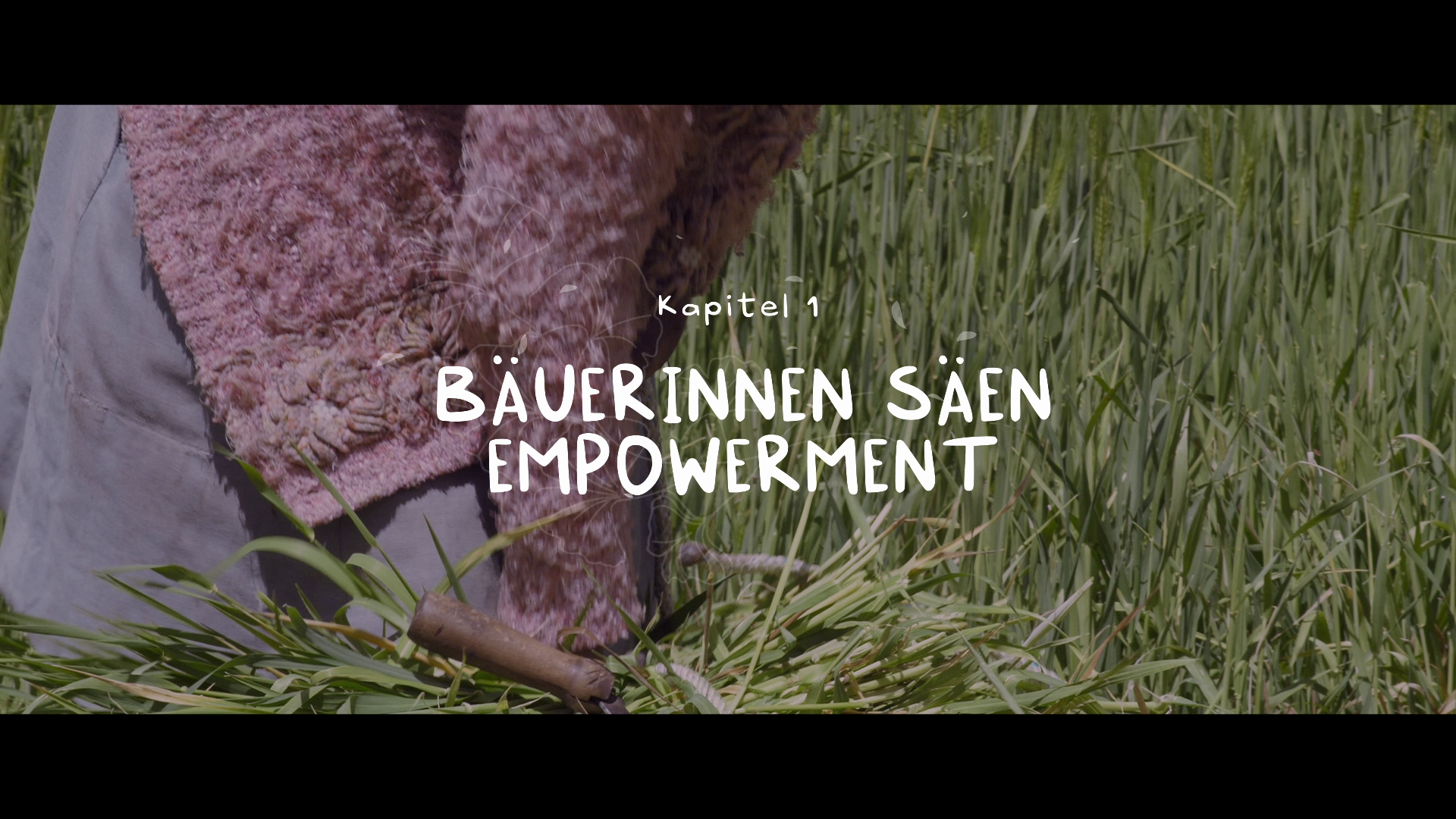
Part 5
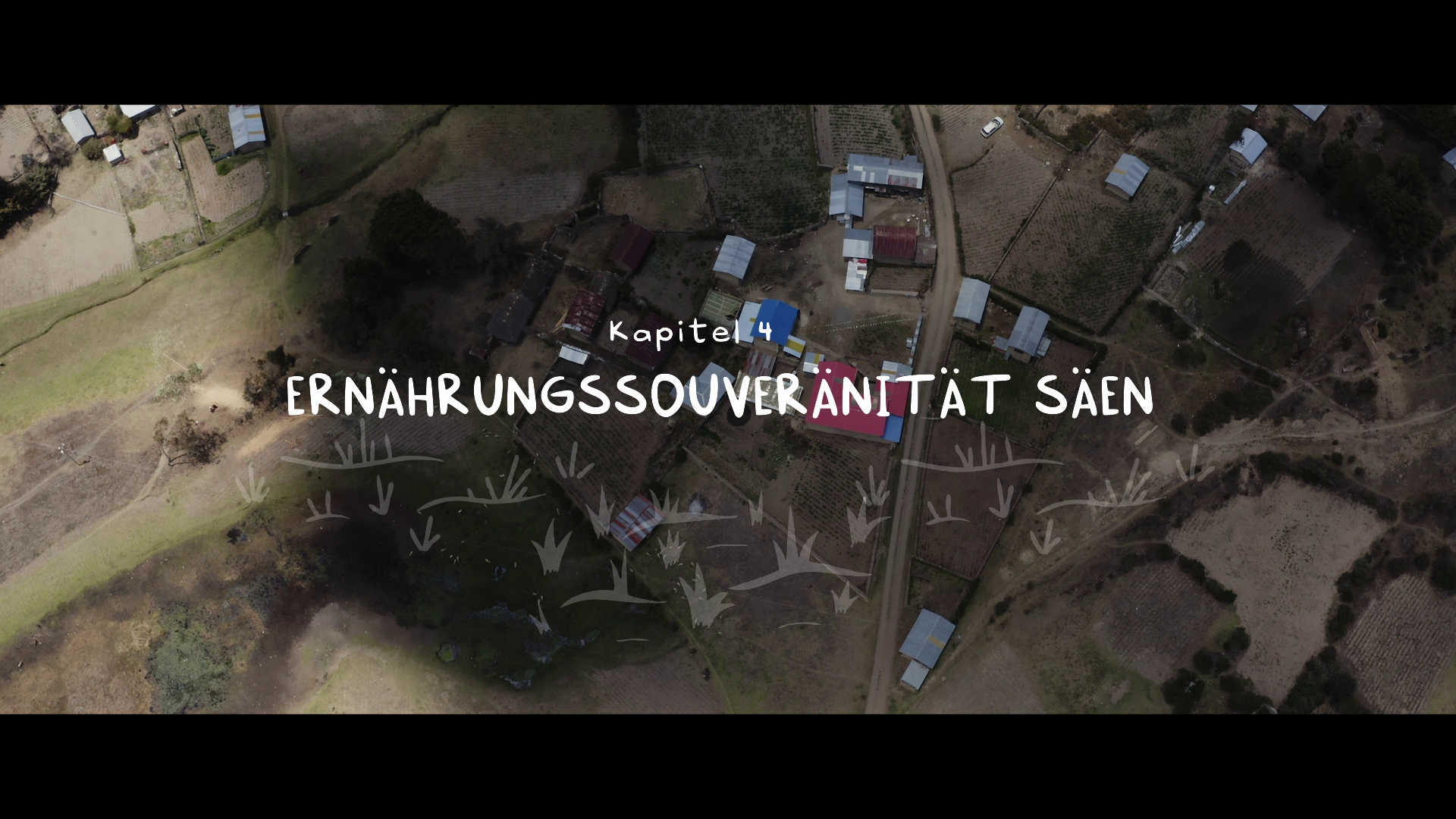
Agroecological cultivation methods
Agroecology combines trans- and interdisciplinary knowledge by linking the social with the ecological dimension and combining traditional, as well as local knowledge with scientific findings. Agroecology also makes particular use of small-scale, diversified farming systems. It focuses on optimizing nutrient cycles and the interaction with local ecosystems. The basis for optimization is the available natural resources of sun, water, soil, species and variety diversity, as well as the knowledge of the local people and communities.
Agroecological agriculture in the Andes
In Latin America, our partners work intensively with over 5,000 Quechua and Aymara-speaking smallholdersto guarantee their right to food and provide them with new income opportunities. This is because global warming is creating major challenges: Water shortages, extreme frosts and an increase in diseases and pests are threatening harvests in the Andean belt and therefore the livelihoods of the population.
This is where we come in, with our partners training and supporting farmers in agroecological farming, sustainable cultivation and irrigation, and healthy nutrition. By using agroecological methods, the participants manage the soil and fields in harmony with nature and create sustainable nutritional foundations. Local seeds, organic fertilizers and small winter gardens ensure a sustainable and nutritious meal for the families.
Commonly used methods in agroecological farming include:
Biological pest control instead of the use of pesticides
Use of self-produced organic fertilizer instead of chemical fertilizer
Production and use of local seeds
Reduced tillage
Cultivation of mixed varieties and mixed crops
Undersowing legumes
Diversified crop rotation
Incorporation of bush and tree stands following agroforestry practices
Establishment of a natural balance between crop production and animal husbandry
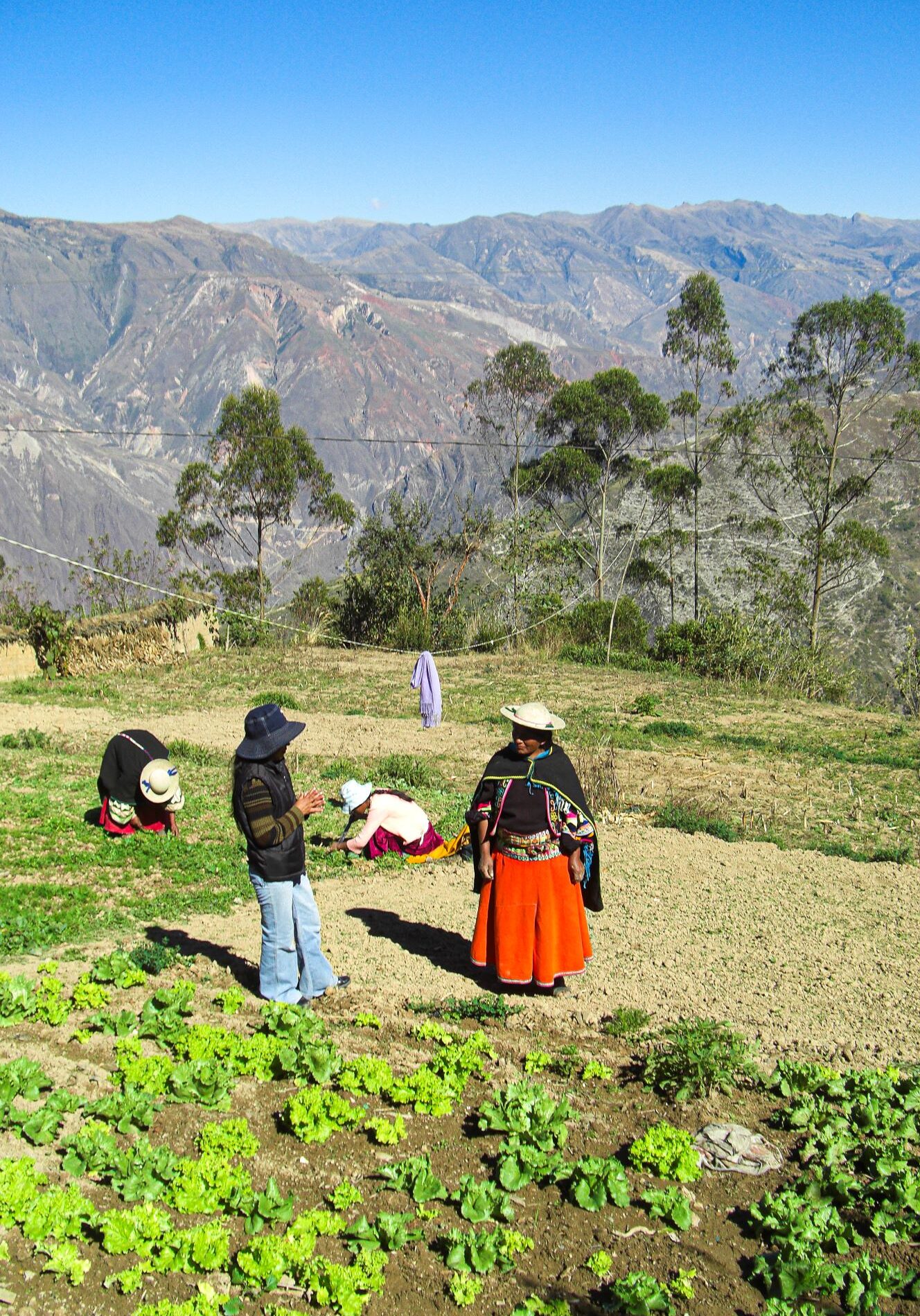
Reforestation and well construction in Tanzania
In Tanzania, for example, we are active in the semi-arid Mbarali district and support the population to be able to feed themselves sustainably. One important measure is reforestation to reduce erosion and improve soil fertility. The focus is on the drought-resistant moringa trees, which can be used by the people in many different ways: the leaves as a source of food, the seeds for water purification and for the production of soap. There are plans to expand the project with neem trees.
170 women from pastoral communities have already (Massai) seminars on sustainable Agriculture, tree cultivation and environmental protection visited. New wells were drilled at two locations and equipped with solar pumps. and water tanks. They now supply over 3,500 people with fresh water. The first tree nurseries and demonstration areas have been established. The planting of Moringa trees is in full swing.
Production of organic fertilizer and energy-efficient cooking stoves in Nigeria
In Nigeria, we work together with smallholder farmers
families in the north-east of the country. The consequences of climate change - increasing extreme events such as droughts and floods - are particularly noticeable here. We support two local partner organizations that train farmers in sustainable agriculture, the use of mixed crops, organic fertilizers and methods for environmentally friendly pest control. We promote the construction of energy-efficient stoves and various reforestation activities.
Our contribution to climate justice
Alternative farming models and food production systems would not only offer promising solutions for dealing with the climate crisis in Switzerland, but would also have a positive impact on (soil) biodiversity, water and soil protection, and thus on Switzerland's ecosystems. However, promoting and implementing alternative agricultural management methods and modified food production systems in Switzerland that lead to a measurable positive impact on the environment requires a willingness to act on the part of all stakeholders involved - from farmers, wholesale distributors and politicians to consumers.
What can be our contribution as consumers?
Reduce consumption of animal products
Prefer products from organic production
Seasonal and regional food consumption
Direct purchase of agricultural products from farmers
Minimize food waste in the household
Guide to the transformation of the Swiss food system
Together with a scientific committee, the SDNS (Sustainable Development Solutions Network Switzerland) has published guidelines for the transformation of the Swiss food system. In an interdisciplinary scientific process, for the first time a comprehensive action plan for the reorientation of the food system in line with the Sustainable Development Goals has been developed for a country. The researchers involved have thus created an important basis for further political discussion in Switzerland and internationally.
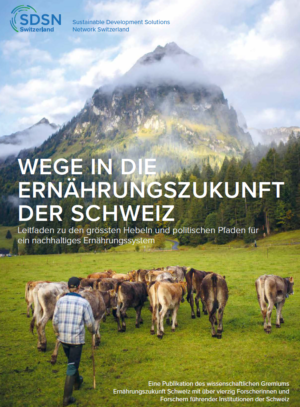
Become part of our campaign
Raise awareness with a campaign in your parish on the topic of education for ecologically sustainable development in Latin America, Africa and Switzerland.
The campaign runs from September 8 to Mission Sunday on Advent Day.
Suitable dates for church services, events or campaigns could be:
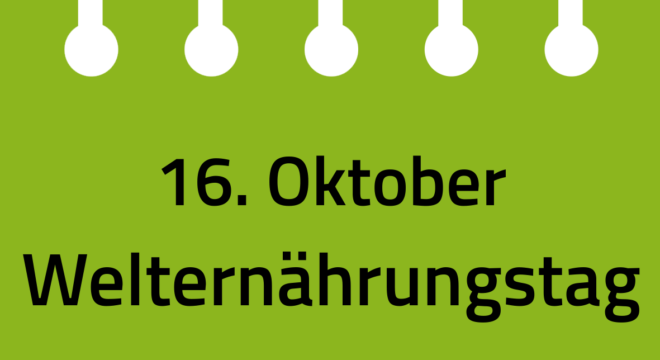
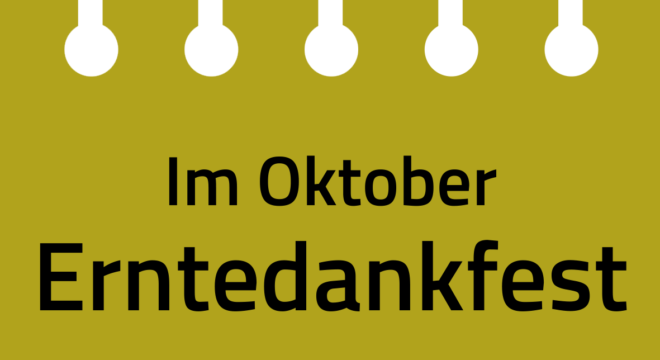
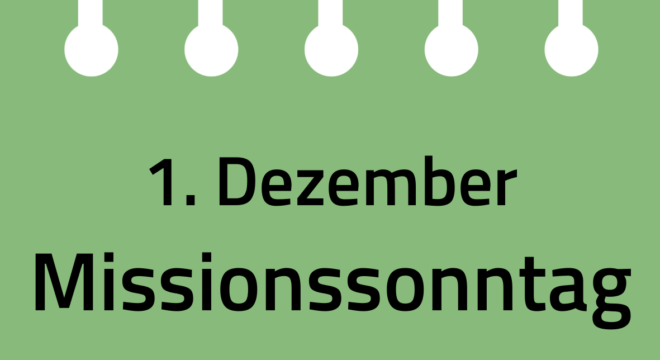

Rent our photo exhibition "The soul of the Andes - between tradition and change"
Raise awareness among your parishioners about climate change and food security in the Andes. Our photo exhibition reports on life around Lake Titicaca. It shows the current precarious state of Lake Titicaca, a unique wetland of very high ecological and cultural value. It documents the problems that farmers in the high Andes are facing as a result of climate change and the resources and solutions that Mission 21 and its local partners are using to support those affected.
Rent our Photo case with 28 impressive photo prints Including exhibition booklet with exciting background information to the individual pictures. You can place the photo prints (A2) on tables or attach them to pinboards using the photo clips supplied. Create your own photo exhibition!
Impressions
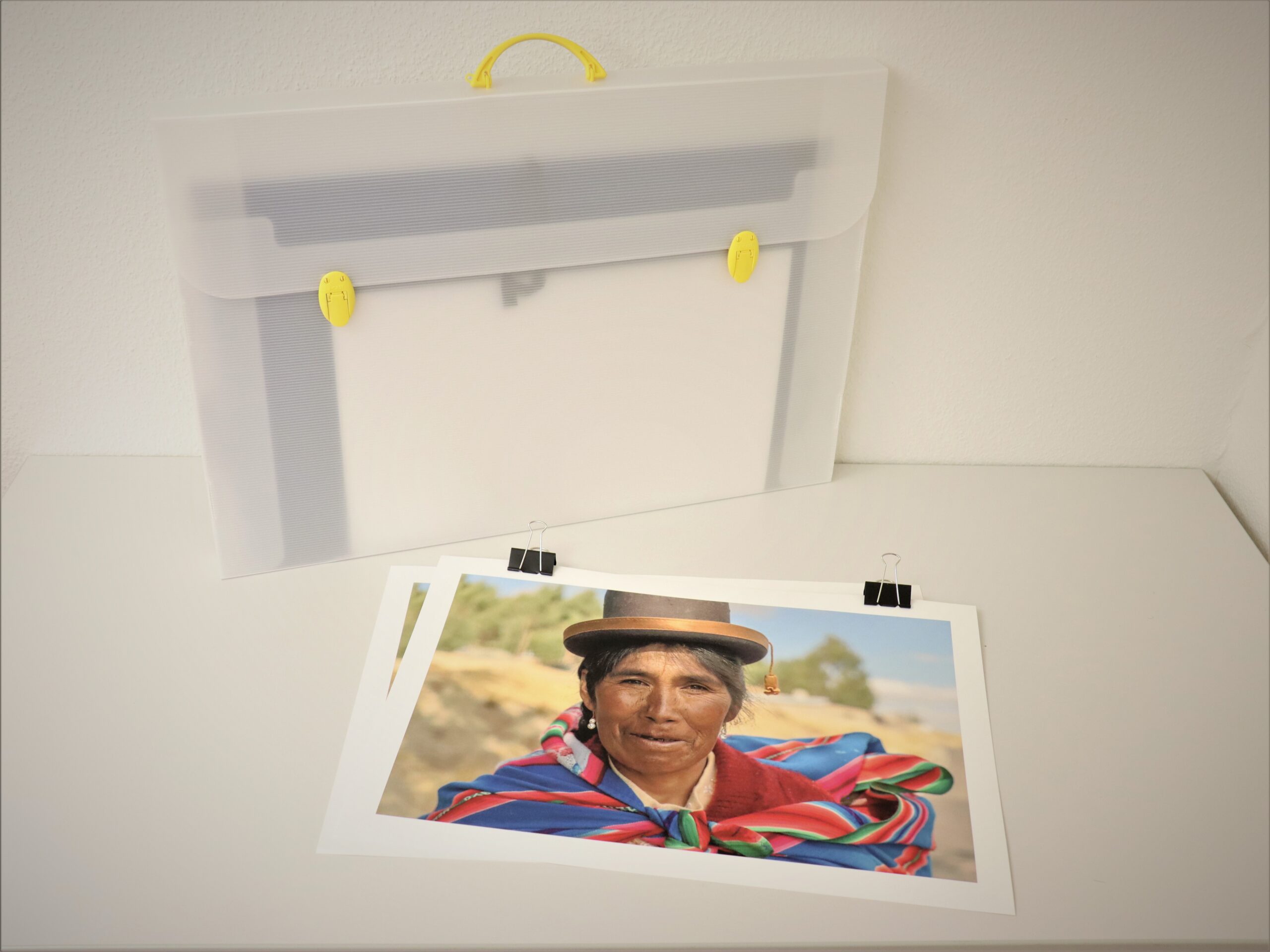
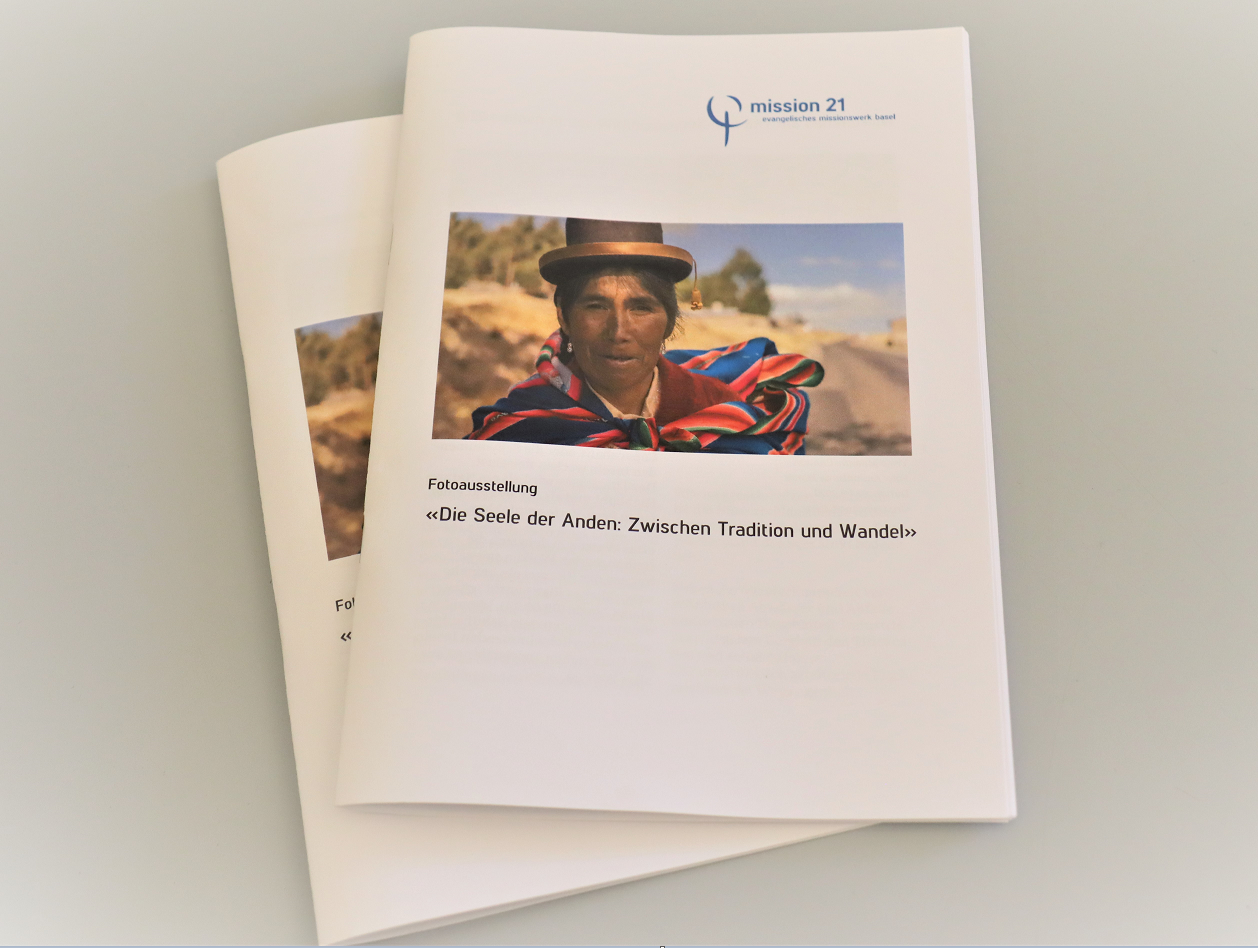
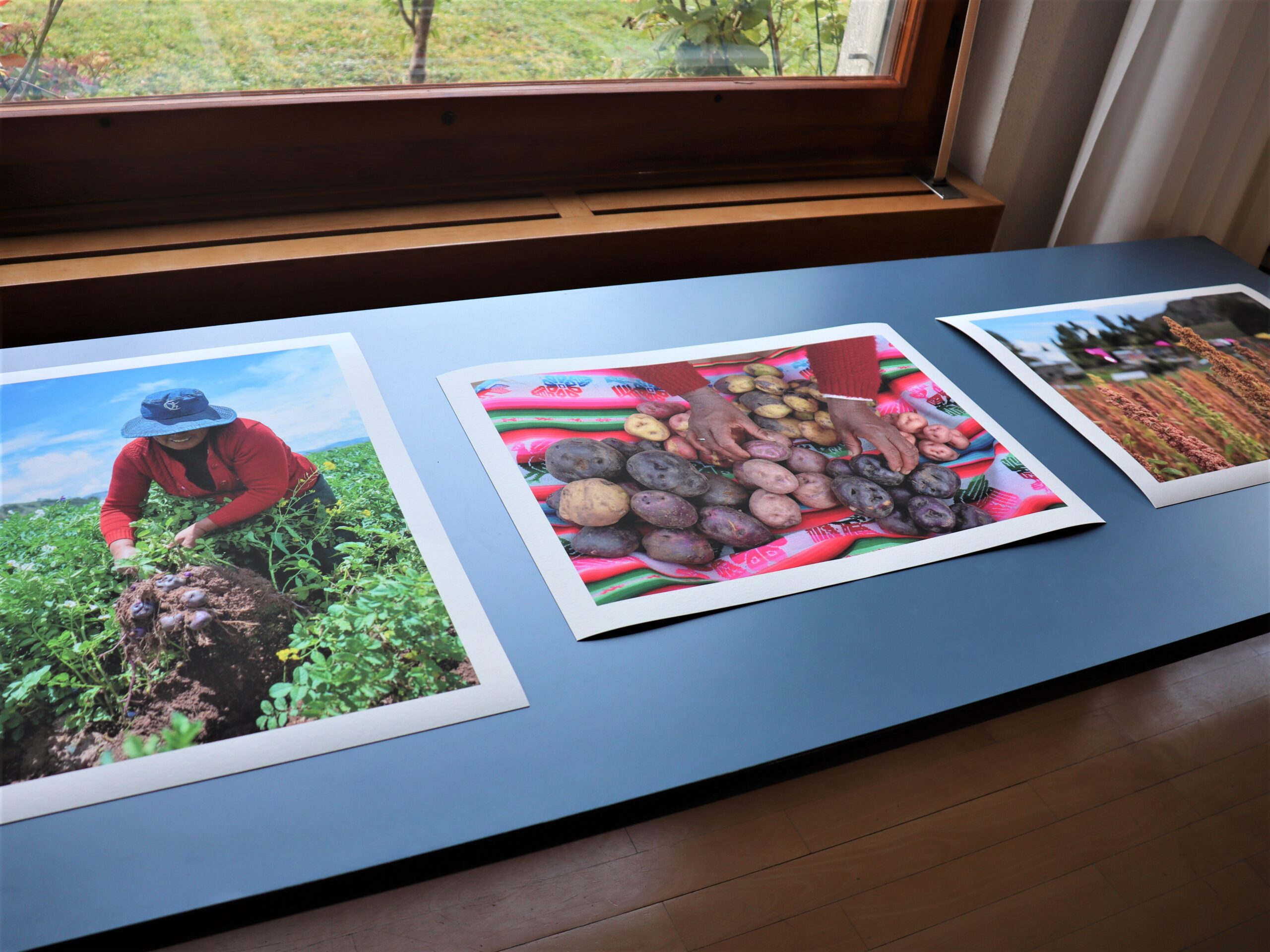
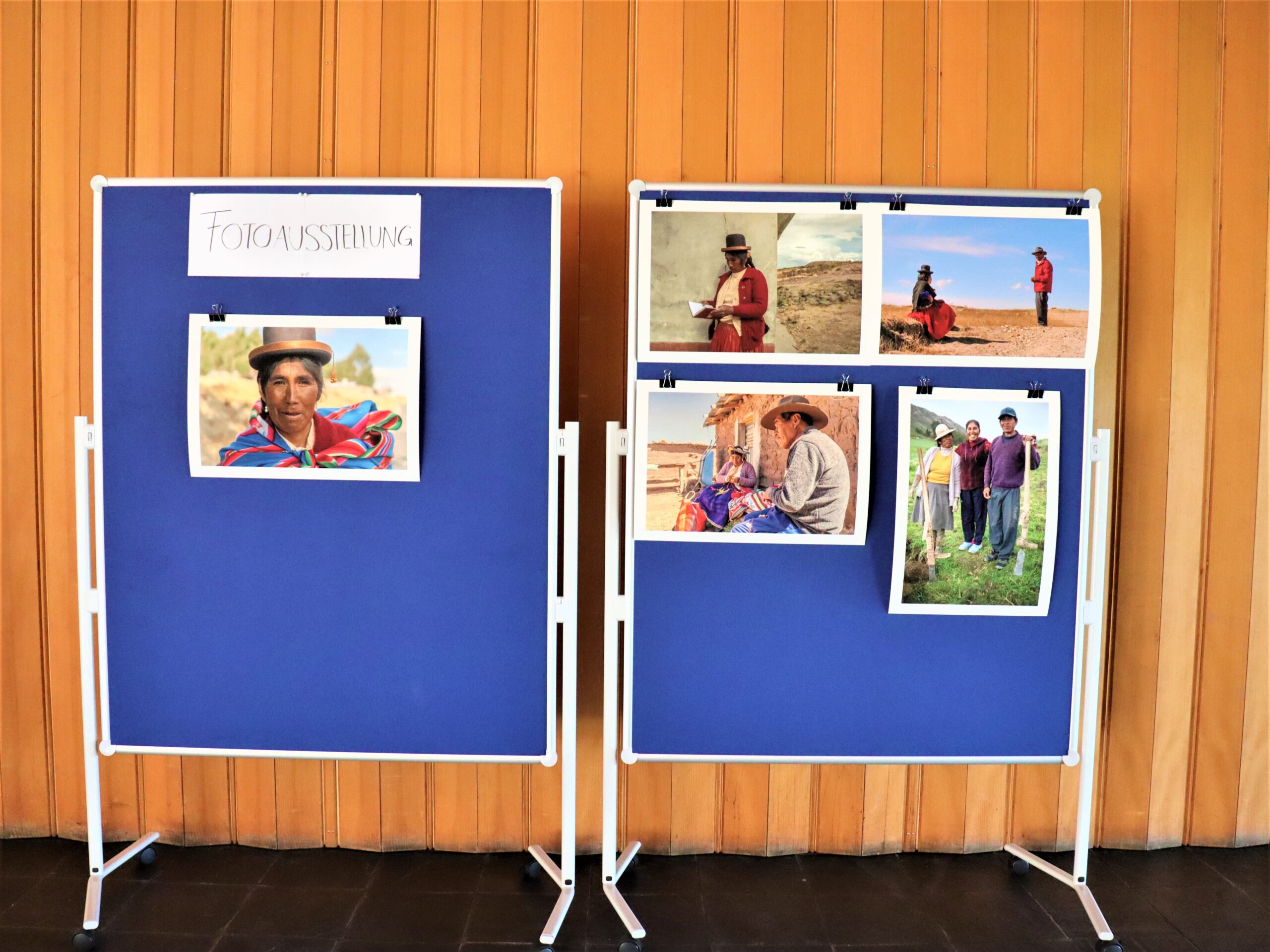
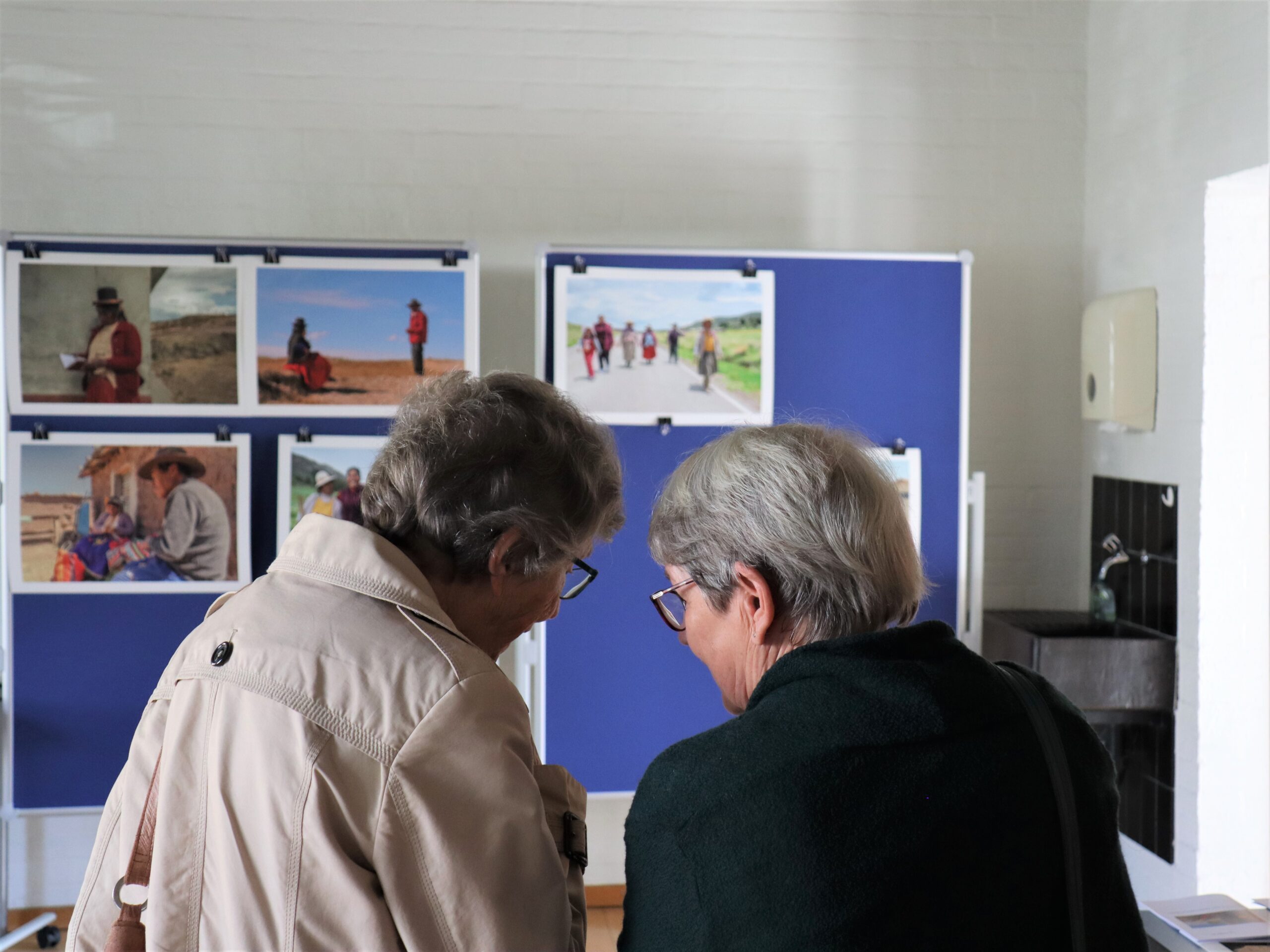
Distribute our seasonal calendar in your parish
The seasonal calendar helps us to buy seasonally and regionally. In this way, we can all contribute to our health and the climate.
Support our educational work with a collection and give away our seasonal calendar as a thank-you gift. For example, after a Thanksgiving service.
You can download the seasonal calendar for free or order it as a poster.
Raise awareness for conscious giving with our gift donation offer
Our gift donation offer "Give a ray of hope" also fits in with the "less consumption" approach. This not only follows the idea of conscious giving, but also supports socially and ecologically relevant projects in the Global South.
Take part in the promotion of our gift donation offer "Give a ray of hope" and order our posters and flyers. You can hang them up and place them in the community center. Interested parties can easily make a gift donation onlineprint out a personalized gift certificate and, if required, order a Lichtblick greeting card, which we will send by post. This is a suitable campaign, especially at Christmas time, to give churchgoers a beautiful and meaningful gift idea.
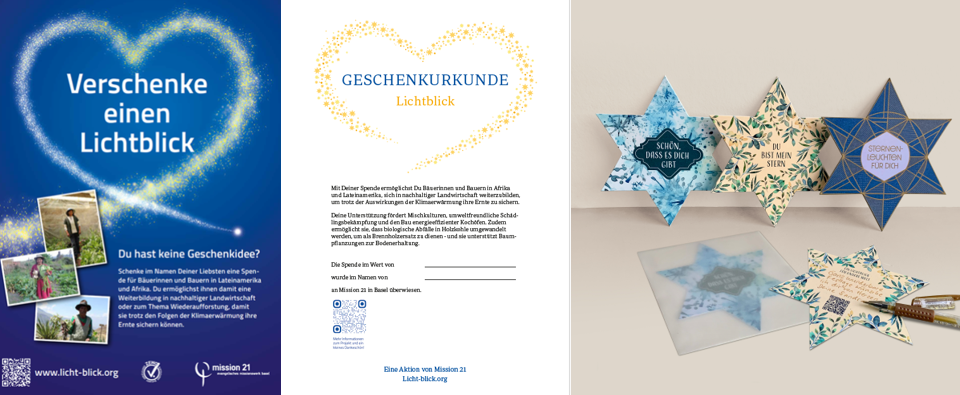
Sale of gift certificates and Lichtblick greeting cards in your parish
If you would like to enable your parishioners to make a gift donation directly in your parish, we will be happy to send you the gift certificates and Lichtblick greeting cards for sale in the parish hall. Please get in touch with us:
Support our Christmas card sales
Order our Christmas cards with illustrations of regional foods from the Global South and Switzerland.
Sell them, for example, on the 1st Advent, Mission Sunday, in your parish hall or church. With the sale you support our educational projects in Latin America and Africa for ecologically sustainable development.
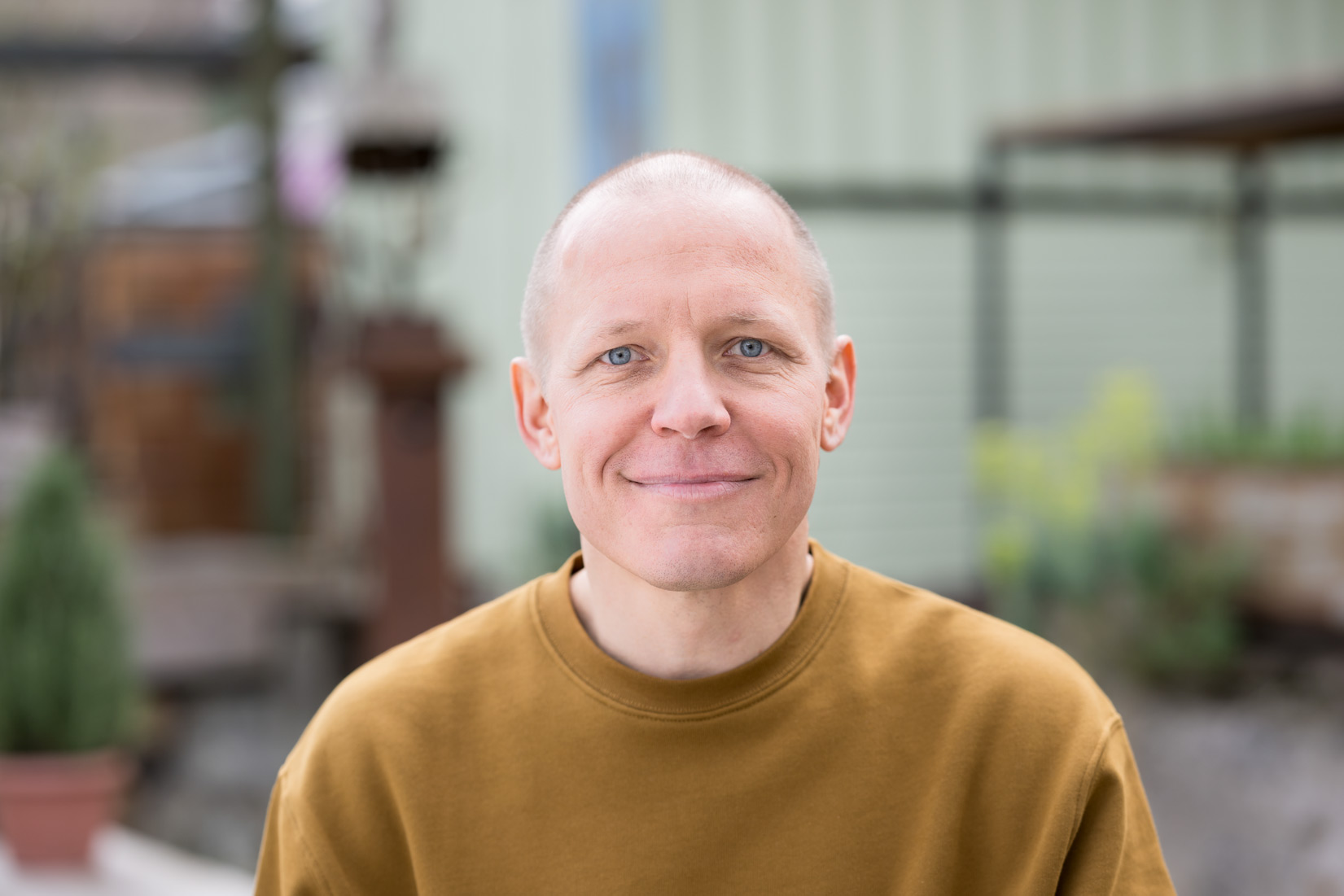
Interview
"Climate change is an opportunity to reshape our environment".
Birsmattehof in Therwil, BL supplies the Basel region with top-quality organic vegetables. Pio Jaworski has also been working at the farm for eight years. Together with other colleagues, he ensures that the vegetable baskets are packed and delivered and is responsible for contact with customers. Jaworski studied environmental and resource management - something he is now also very practically involved in.
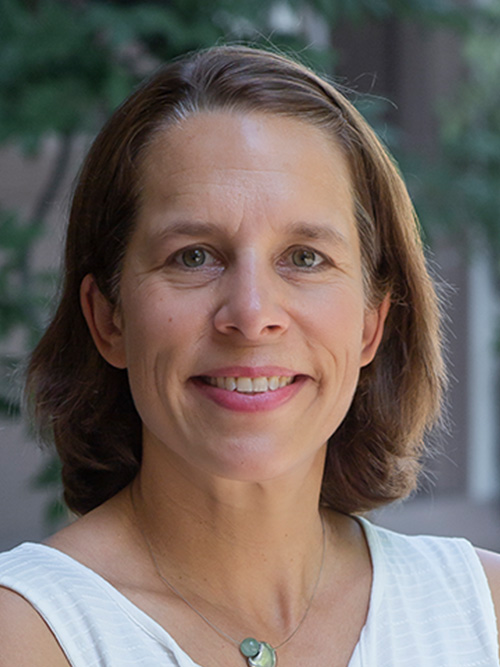
reformed.
Yes to the climate law: Churches also have a duty to act
The Yes vote on the climate protection law was well received by church organizations. If Switzerland wants to achieve net zero by 2050, the churches must now also put their foot down.
Contribution with Katharina Gfeller, Head of International Relations Mission 21
Teaching idea
Sustainable living - what is important?
The life story of Elva Apaza Quispe impressively shows how difficult it is for the rural population in the Andes to survive. But agroecological projects can be a real
"Game-changer": securing food, protecting the environment and building self-confidence. A lesson or an evening on the subject can open up new horizons for young people and adults.
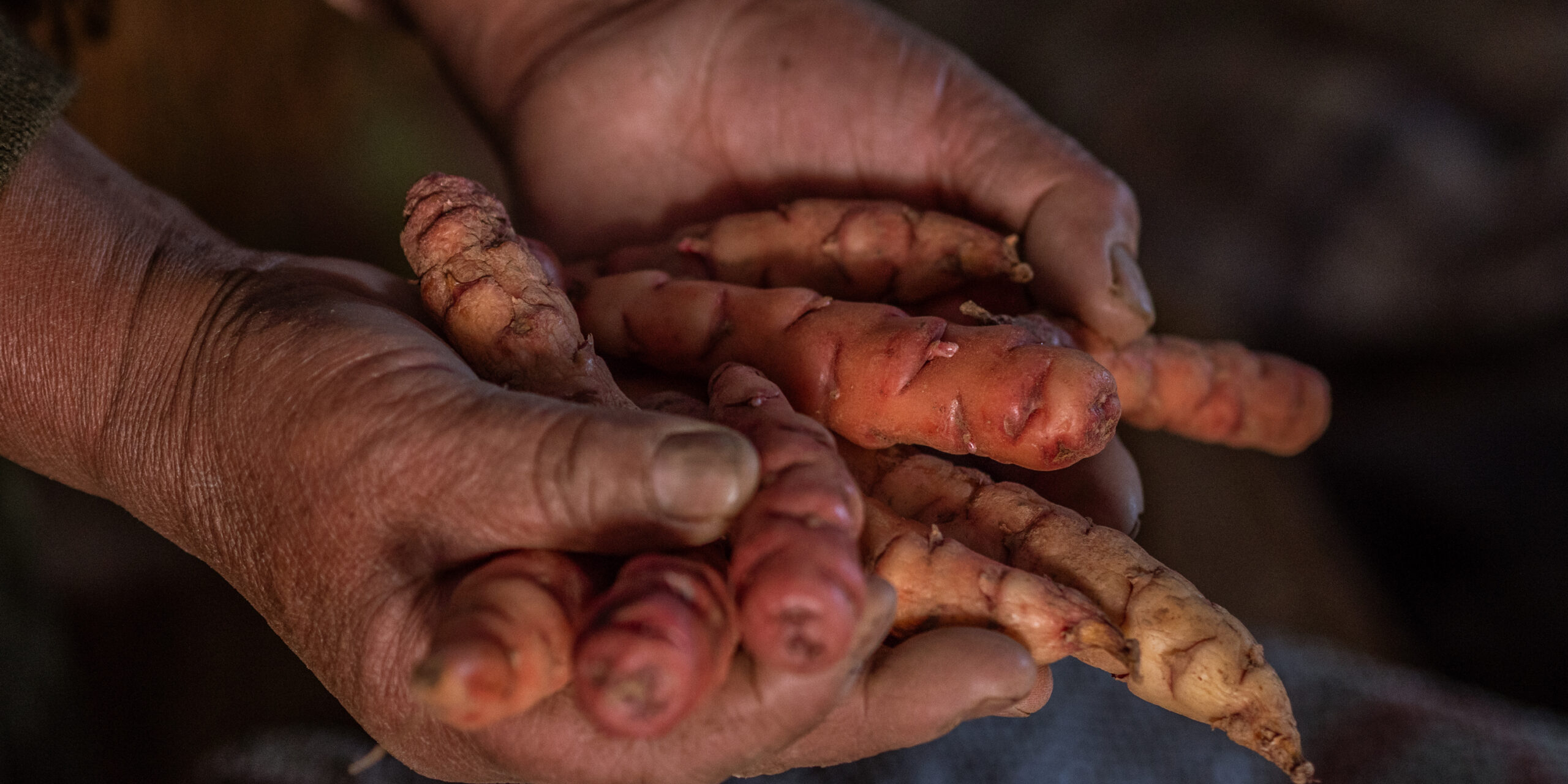
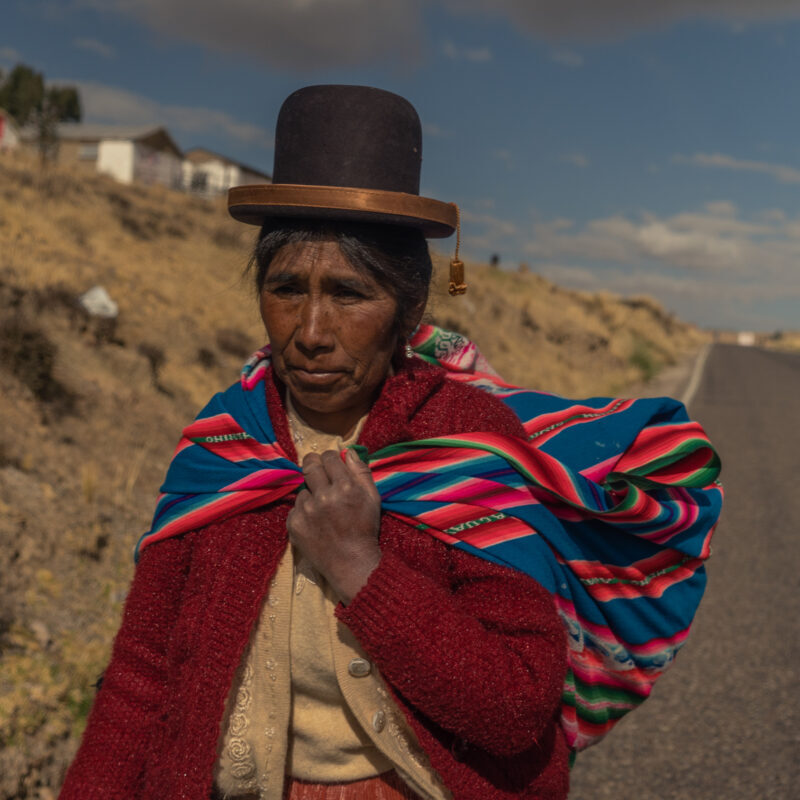
Teaching idea
"How does the world eat?"
Together, take a closer look at the world's staple foods. Become aware: People eat very differently around the world. Culinary traditions are diverse.
Discovering this awakens the joy and openness for intercultural encounters. Together at the table, people from different cultures can come together and exchange ideas. Eating together connects.
Book our workshops
We would be happy to come to your parish and run a workshop to match the campaign theme. For adults or young people. For example:
"Justice goes through the stomach"
Food sovereignty means that all people have access to a fair and self-determined food system. To achieve this, traditional knowledge must be renewed, local cultivation promoted and supplemented with the latest ecological findings. How can this be achieved?
Further teaching materials in our store
Worship idea
Learning from each other, living sustainably
We offer you inspiring suggestions for your church service on the topics of education, food sovereignty and the life situation of Elva Apaza Quispe from Peru. For example, you can organize a service on our campaign theme for Thanksgiving or on the 1st of Advent (which is also Mission Sunday). You can download a detailed ideas paper and a presentation.
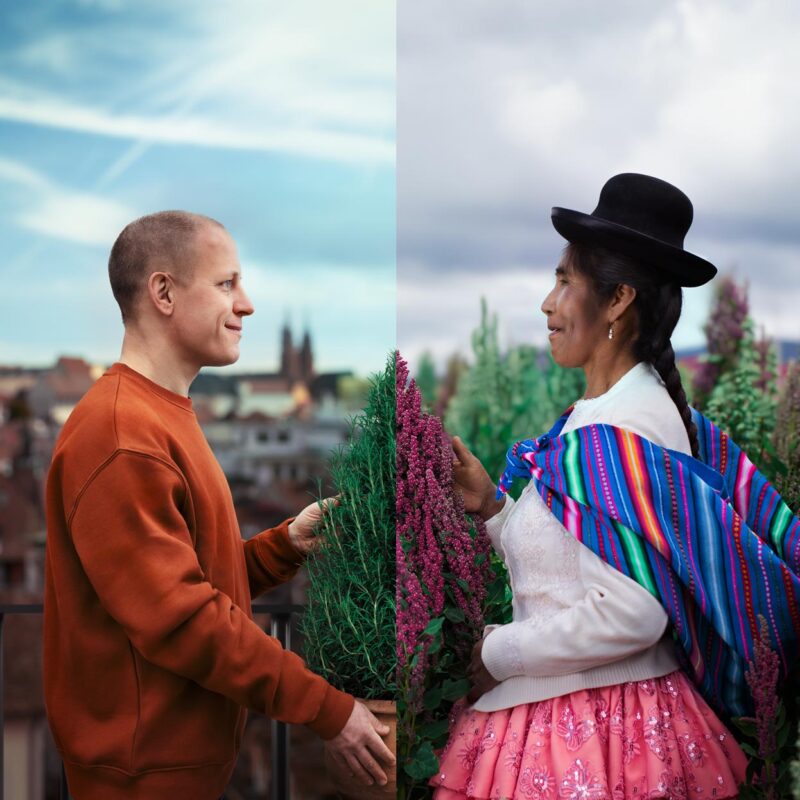
Teaching idea
Book our experts
Whether for a church service, themed evening or general assembly: we will arrange an exchange with our experts from Nigeria and Peru and present the projects and the campaign theme to you in your parish.

Yakubu Joseph
Coordinator Nigeria
"The problem of food insecurity requires adaptation. Agricultural practices must adapt to the problems of climate change. Appropriate technologies will be used that can meet people's needs based on available resources."
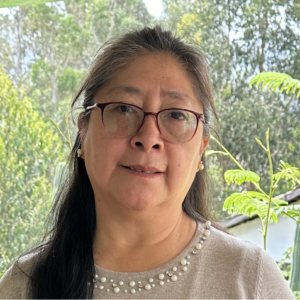
Ebed Grijalva Yauri
Responsible for agroecology and rural development, Peru
"It is important to integrate sustainable agricultural practices, respect natural ecosystems and promote biodiversity, in our case to value the knowledge and wisdom of ancestors and create a process of mutual learning."
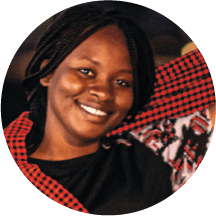
Janet Kefas
Agricultural scientist and participant in Mission 21's Youth Embassy Program.
"Farmers often do not have the necessary means to run their businesses. Access to capital should be made easier. Furthermore, more jobs would have to be created for agricultural students."
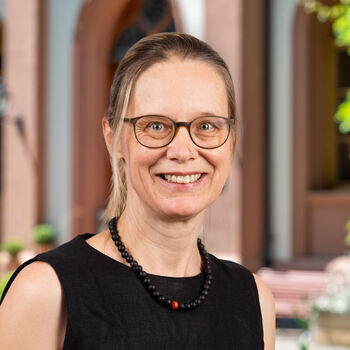
Alexandra Flury-Schölch
Pastor and director of studies
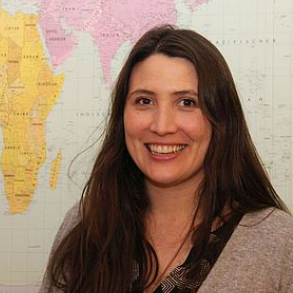
Golda Fuentes
Program Manager Latin America
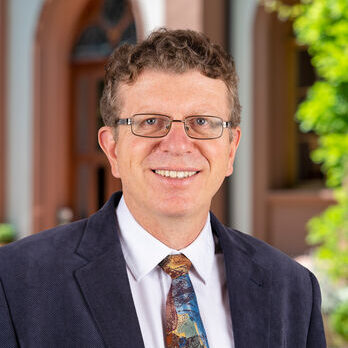
Christian Weber
Pastor and director of studies
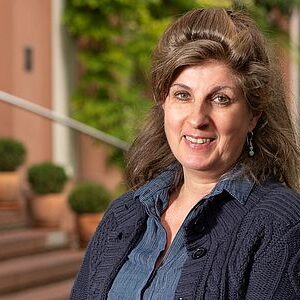
Jacqueline Brunner
Responsible church partnerships
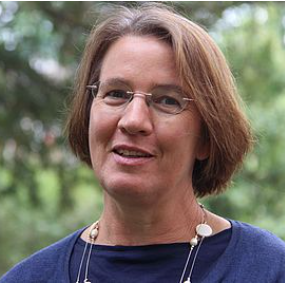
Angelika Weber
Program manager Cameroon and Nigeria
Take part in our webinar:
What does the food crisis have to do with (neo)colonial food systems?
Tuesday, October 22, 2024, 18.15 to 19.45 h, online
Today, 735 million people suffer from chronic hunger - predominantly women and children in rural areas. At the same time, over 900 million tons of food are thrown away every year - a quarter of which would be enough to feed the hungry. What developments have led to the global food crisis? How can food sovereignty be strengthened through biodiverse, sustainable, local agriculture?
Book educational event
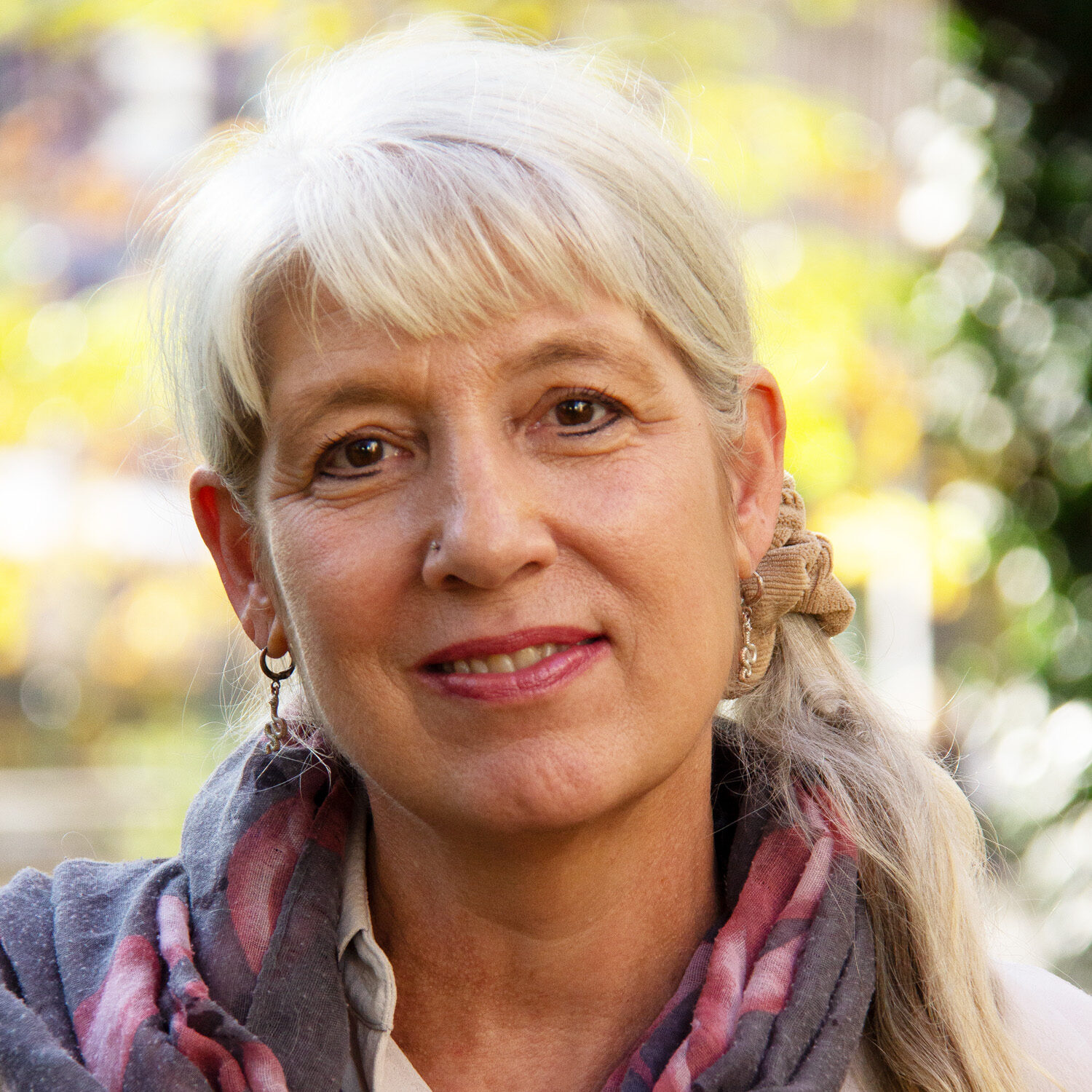
Monika Di Pietrantonio
061 260 22 67
► Email
Use our various materials to promote the campaign and the gift donation campaign "Give a ray of hope" as well as the many suggestions for lessons and church services.
Order now in the store:
Our food sovereignty projects worldwide
Past campaigns
Why climate justice is important
Hope thanks to your support
Mission 21
Protestant Mission Basel
PO Box 270
Missionsstrasse 21
4009 Basel, Switzerland
Tel.: +41 (0)61 260 21 20
info@mission-21.org
Donation account Switzerland:
IBAN: CH58 0900 0000 4072 6233 2
Tax exemption number:
CHE-105.706.527
Donation account Germany:
Savings Bank Lörrach-Rheinfelden
Swift BIC: SKLODE66
BLZ: 683 500 48
IBAN: DE39 6835 0048 0001 0323 33
Account No. : 1032333

